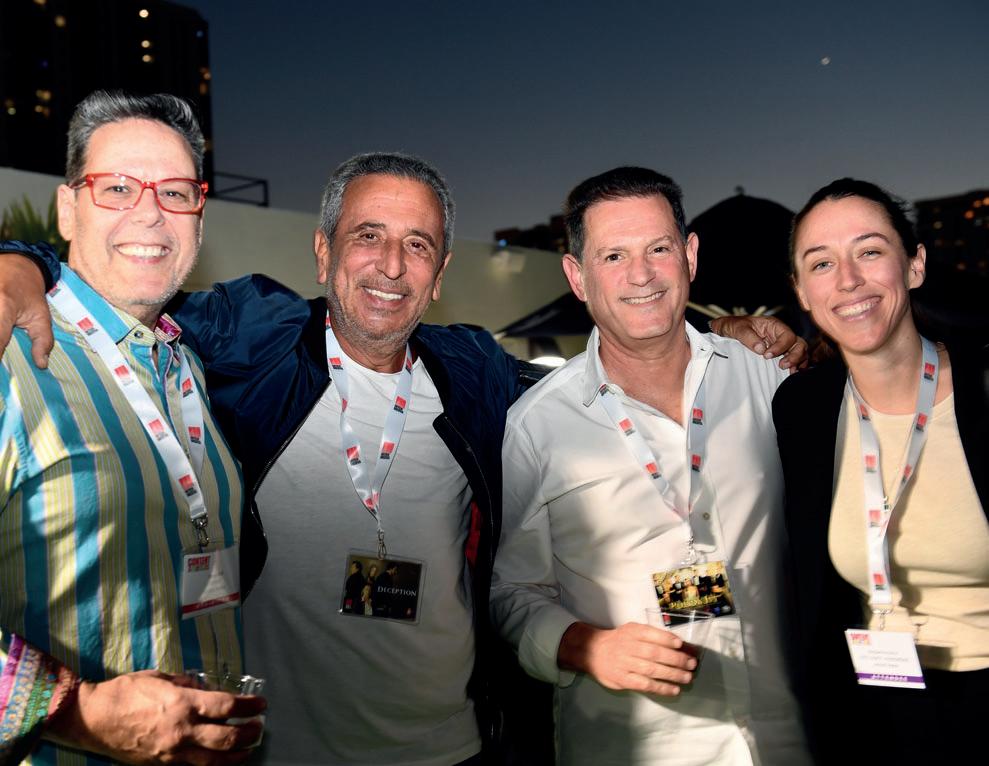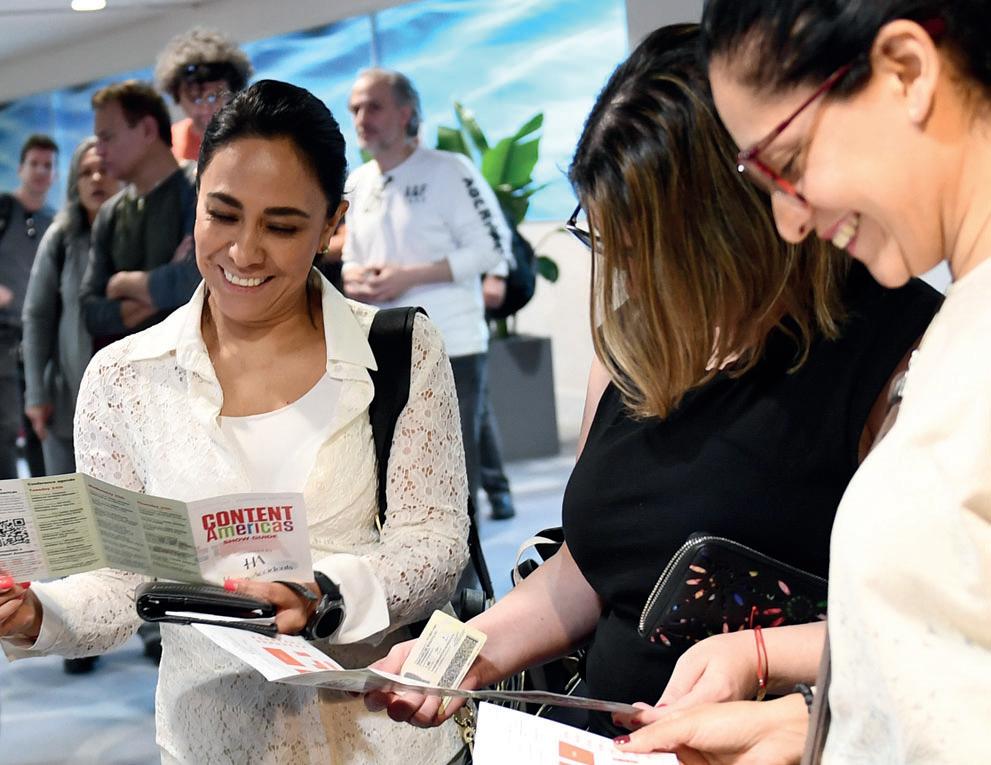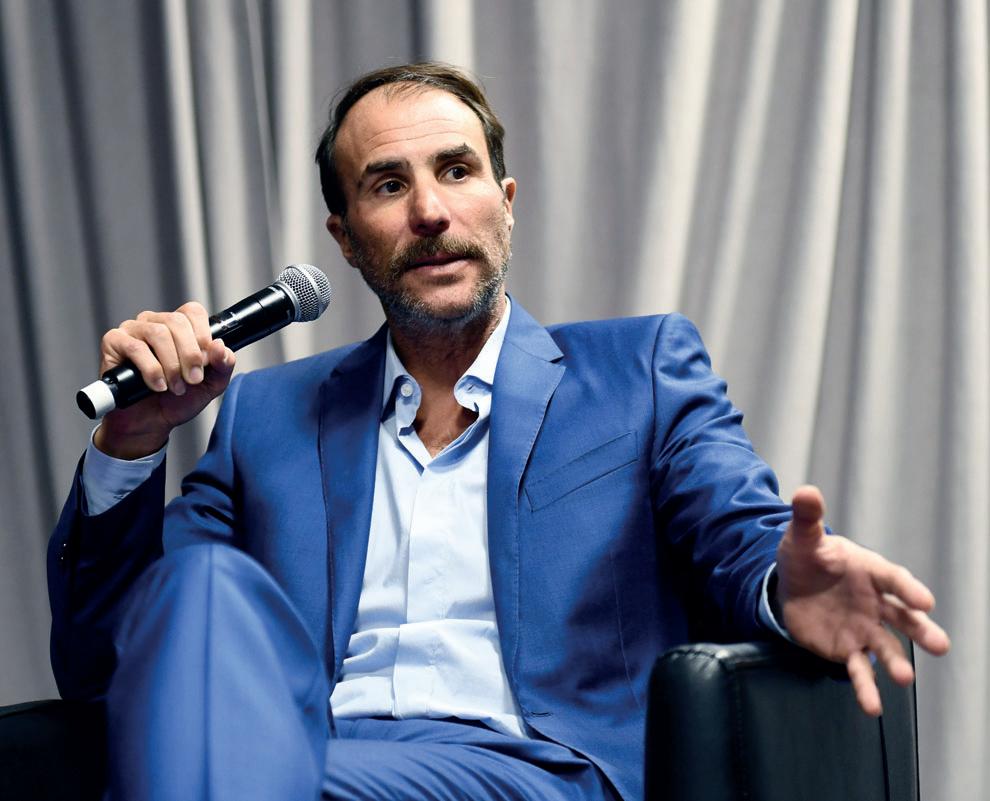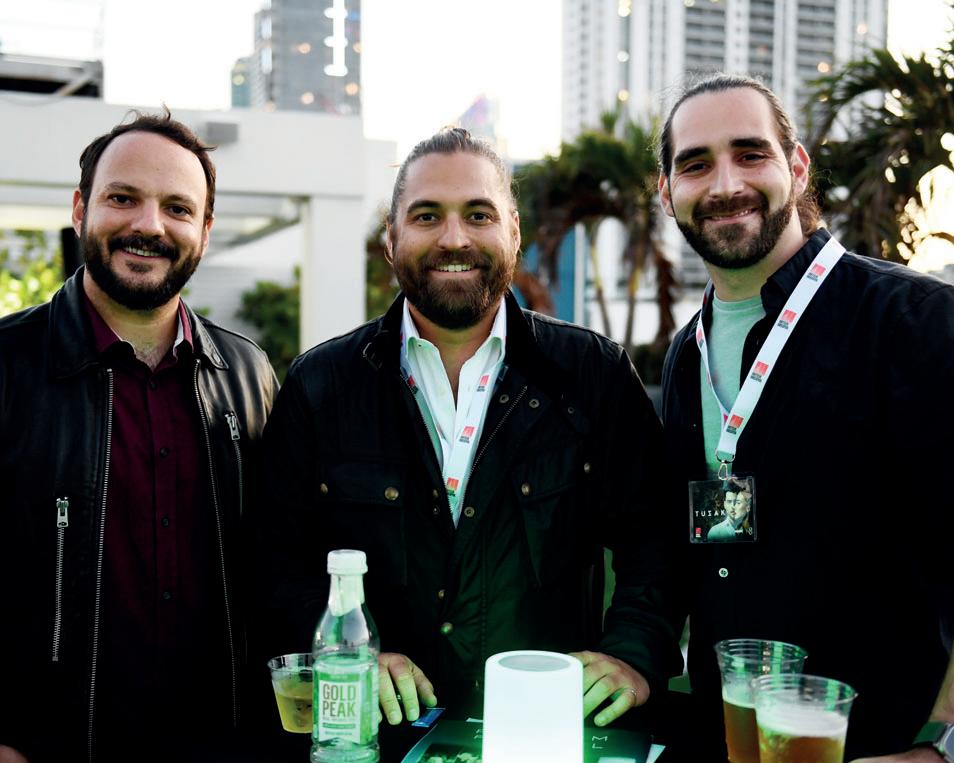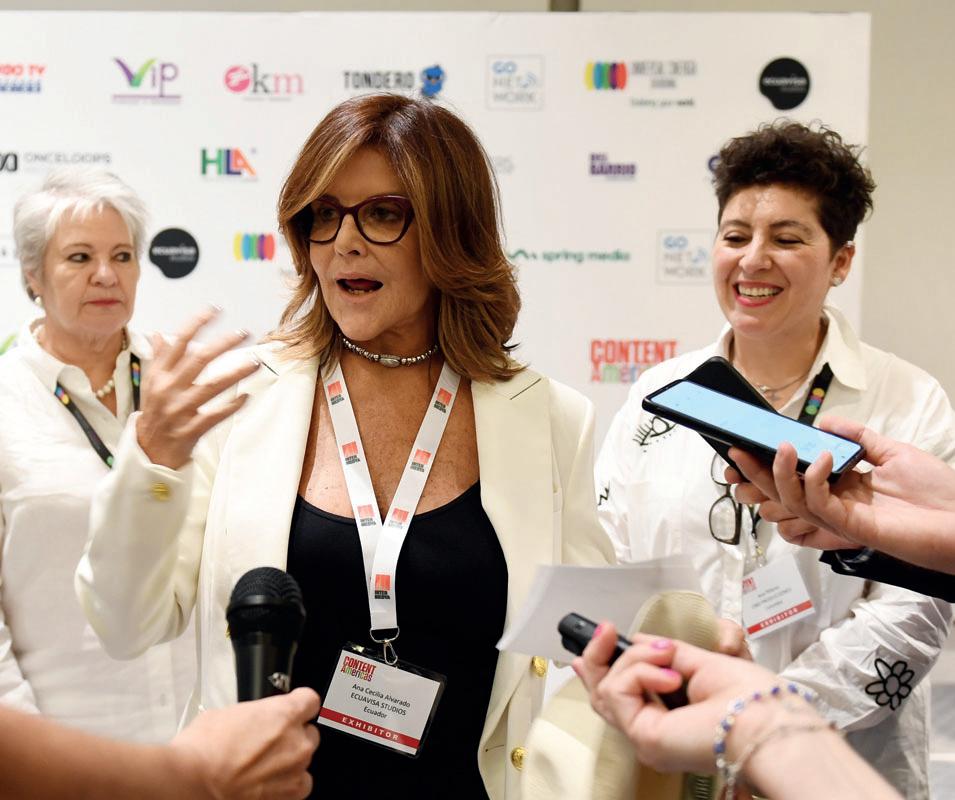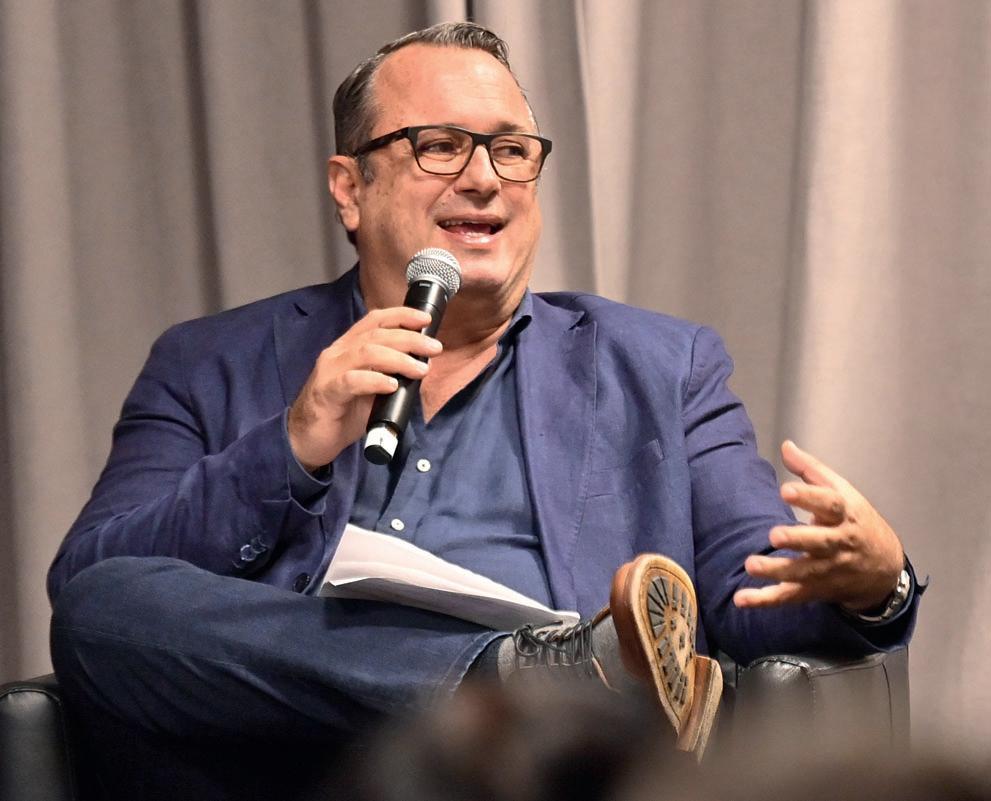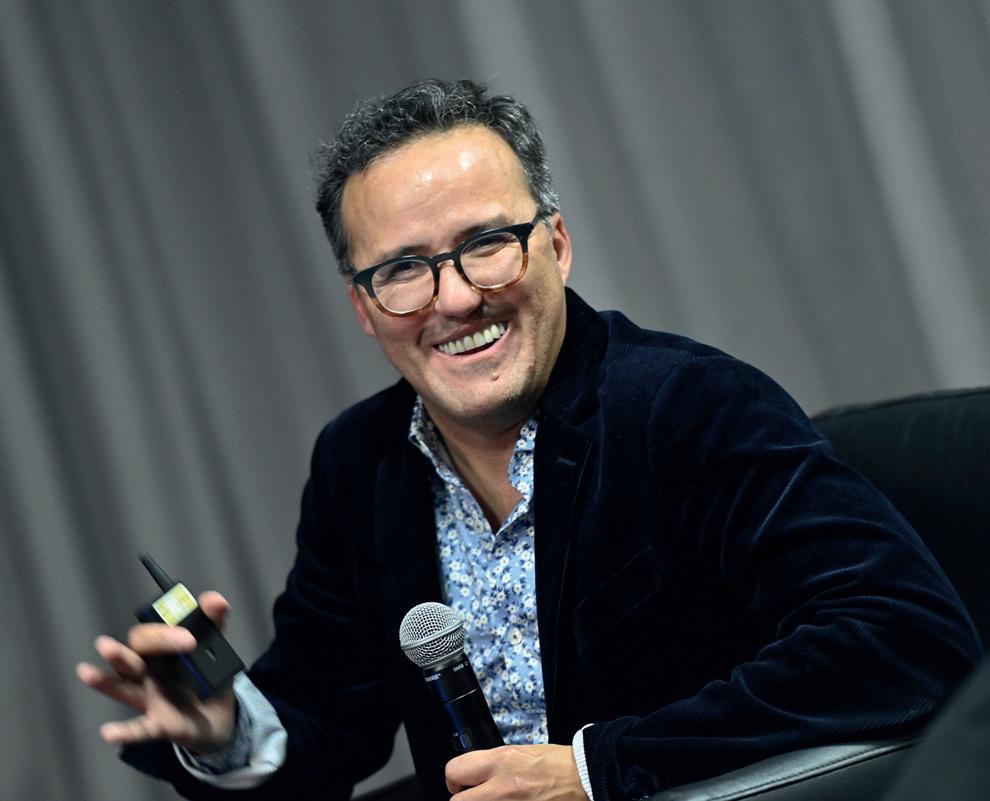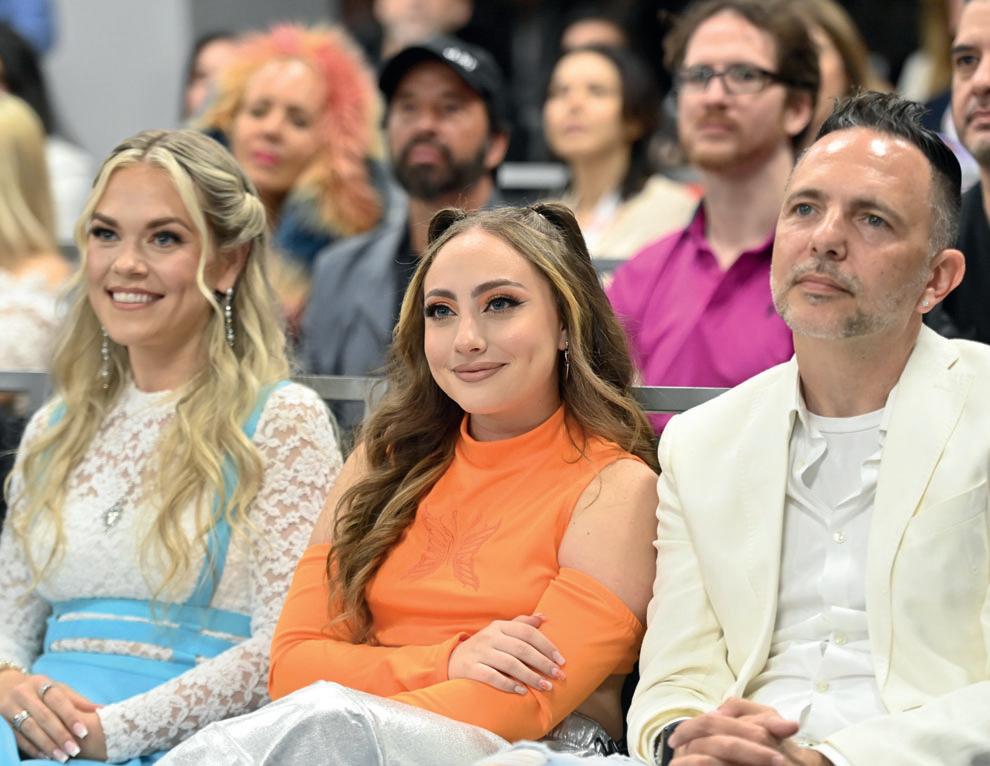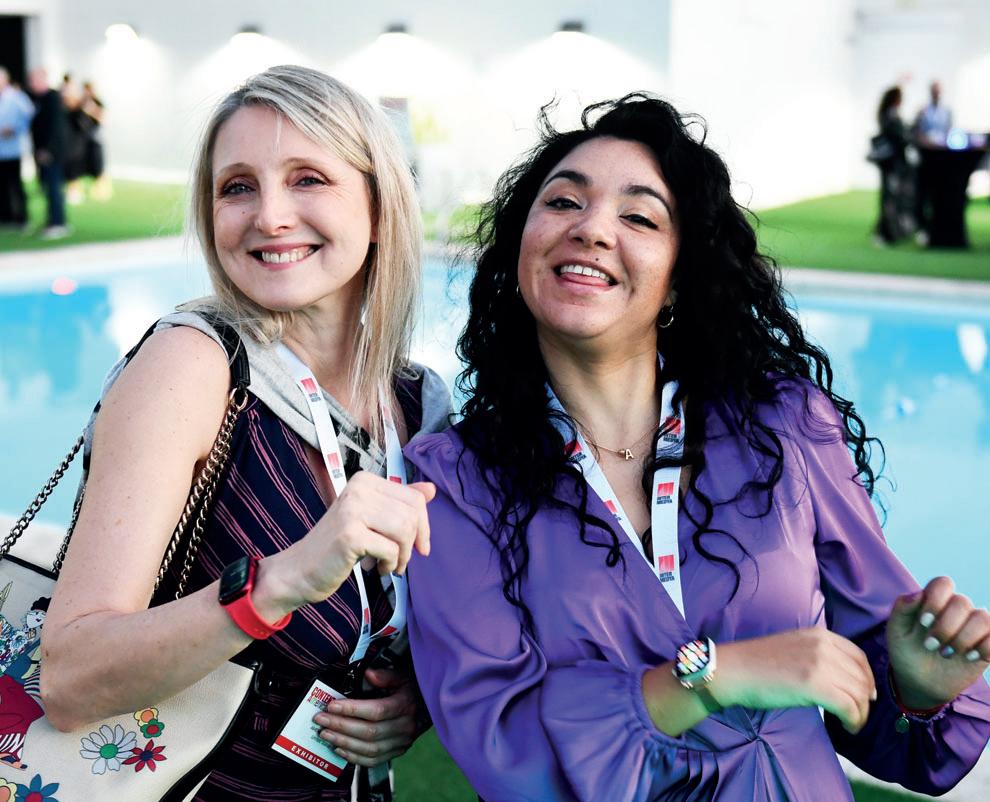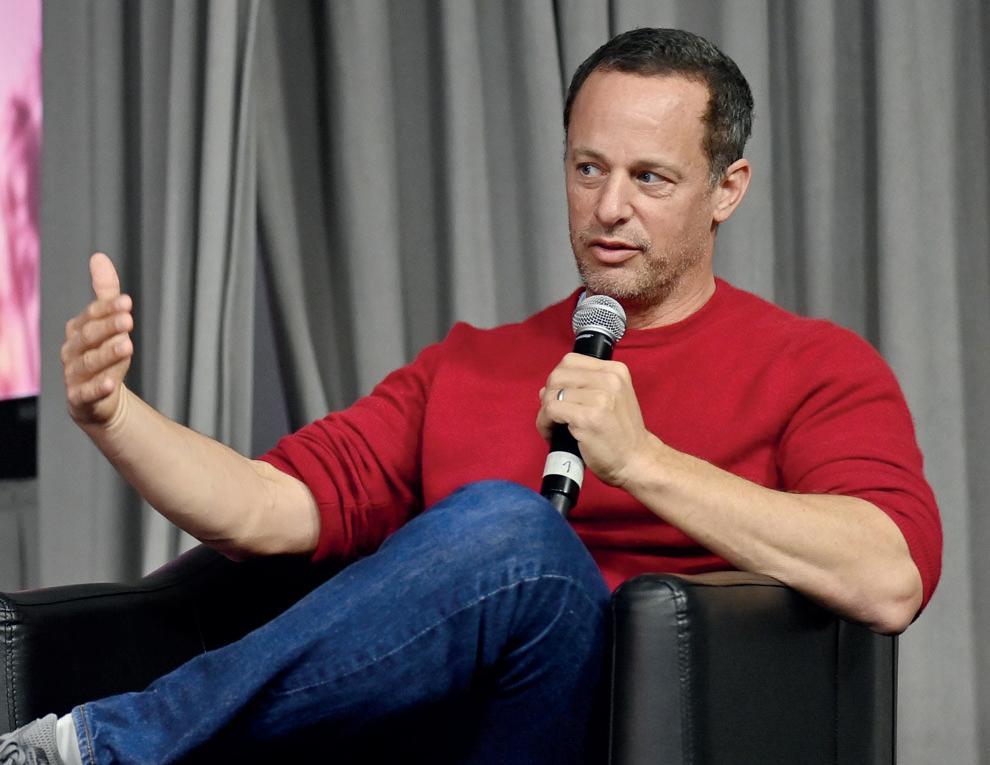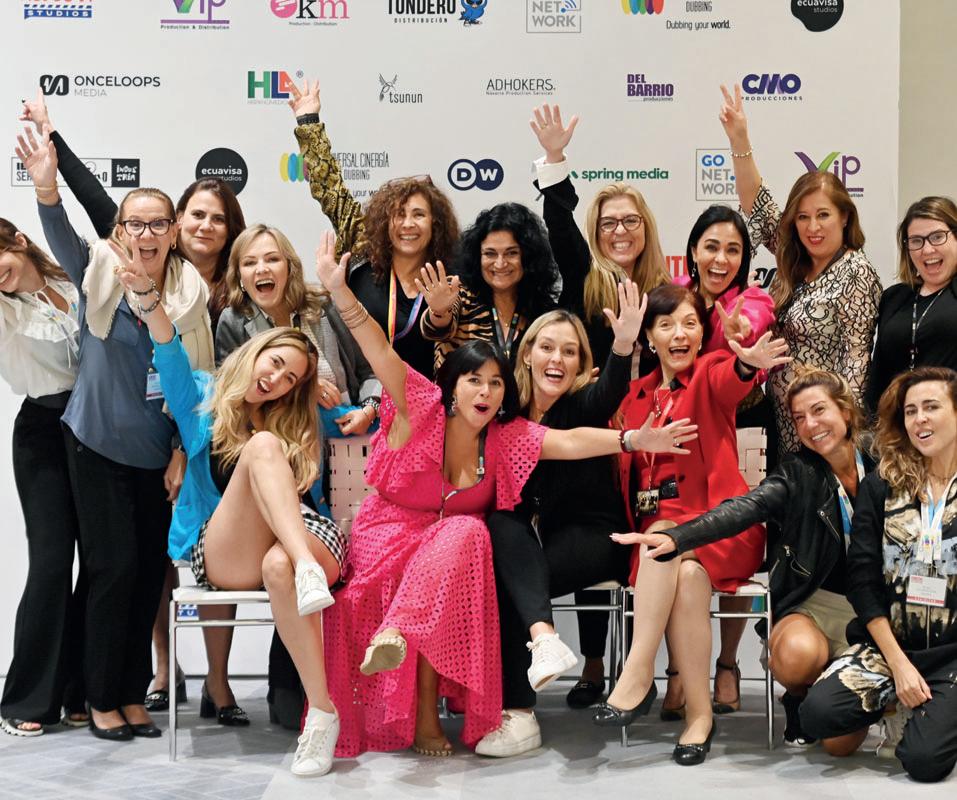Has drama’s baton passed to unscripted?
Tips from the experts on pitching paper





Has drama’s baton passed to unscripted?
Tips from the experts on pitching paper







Top Chef’s recipe for a fresh format
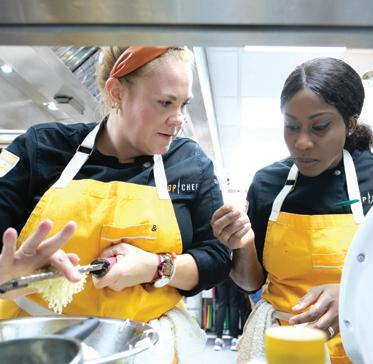
PLUS: Content Strategies hears from Denmark’s TV2 | Spotlight on ITV Studios and RTBF’s Development Slates
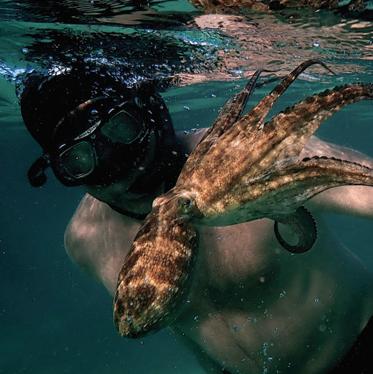
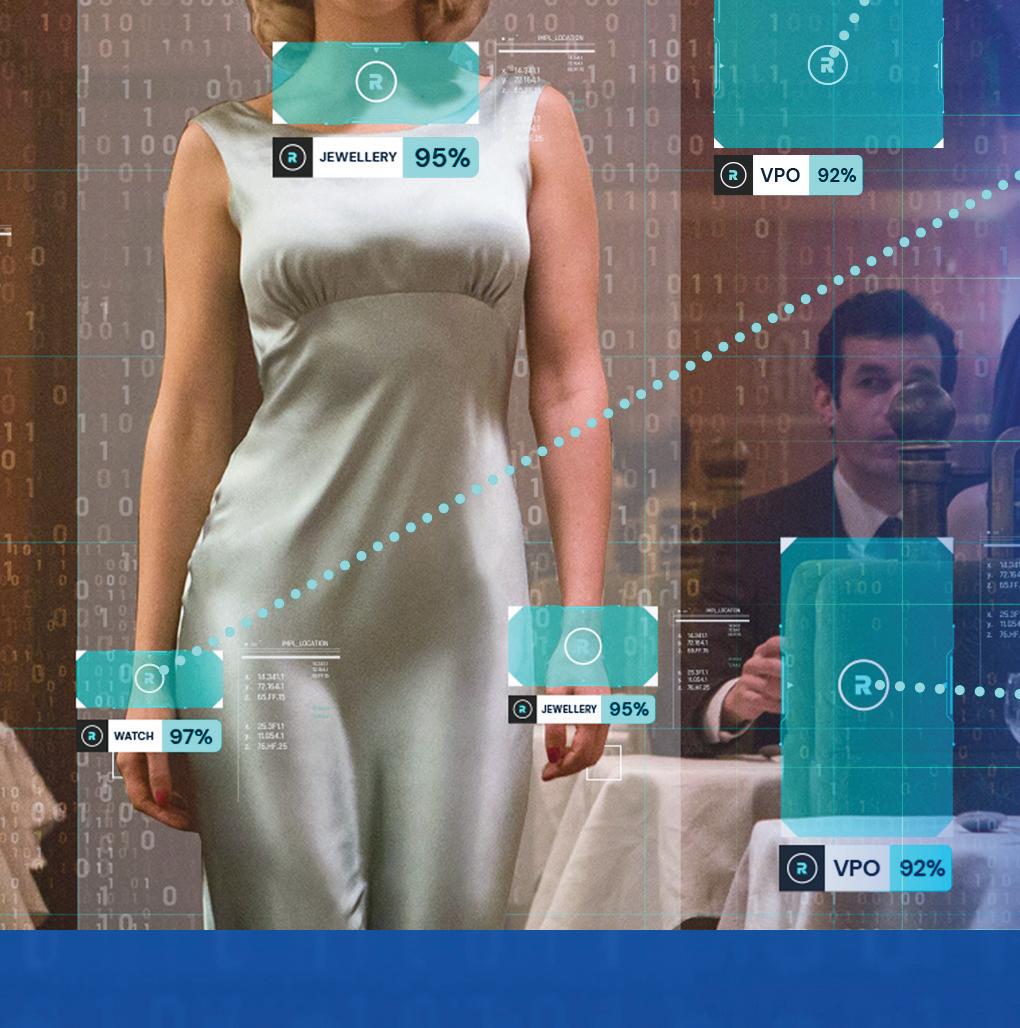
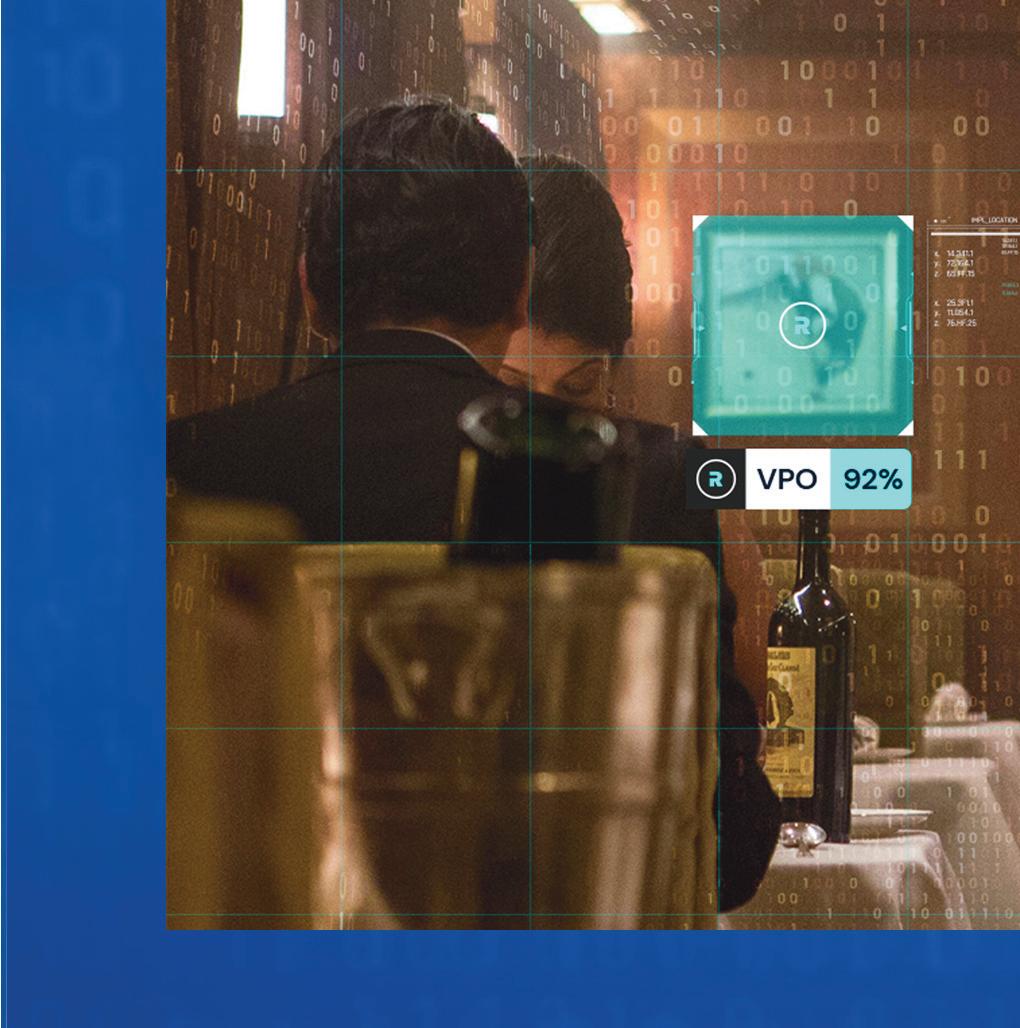

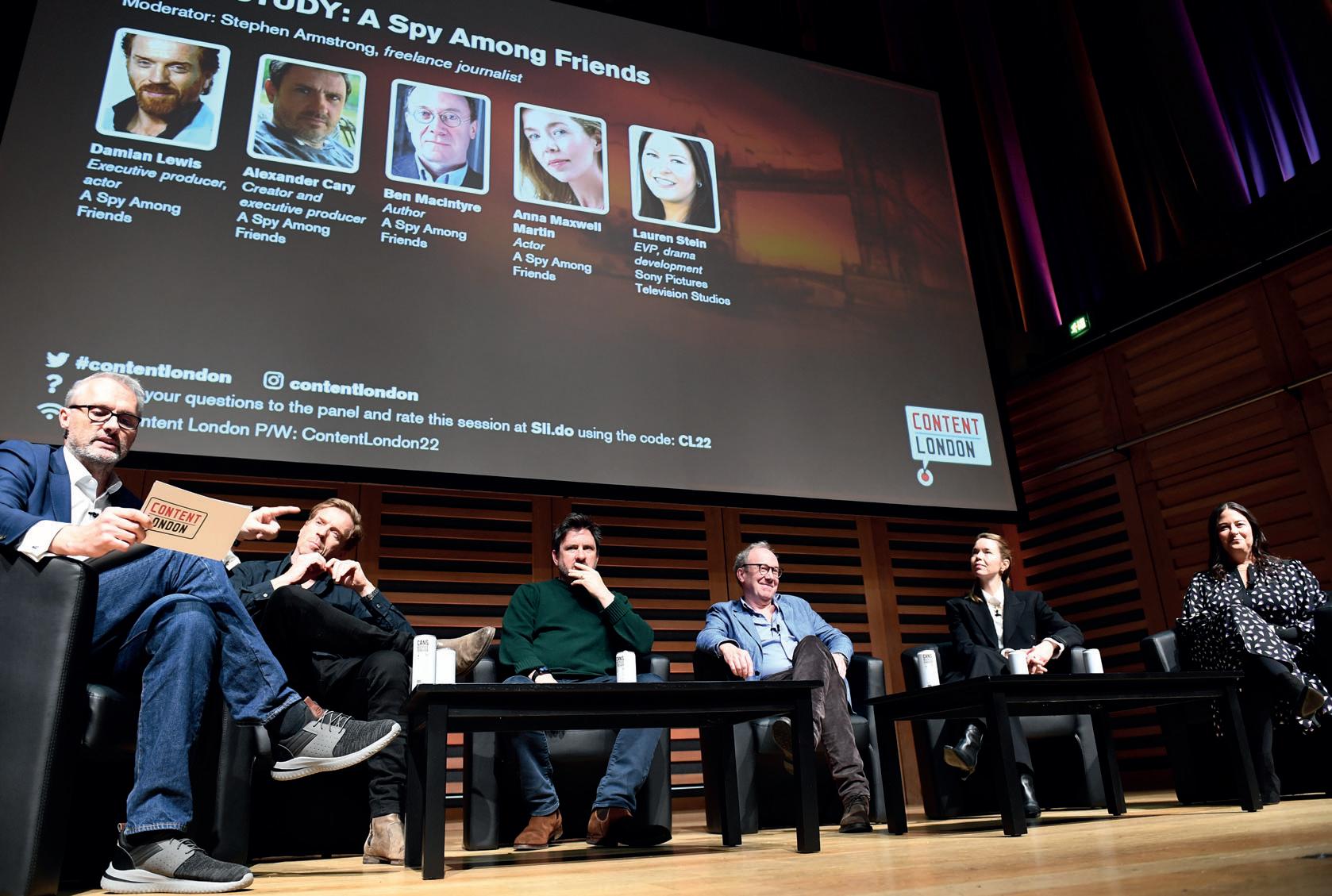
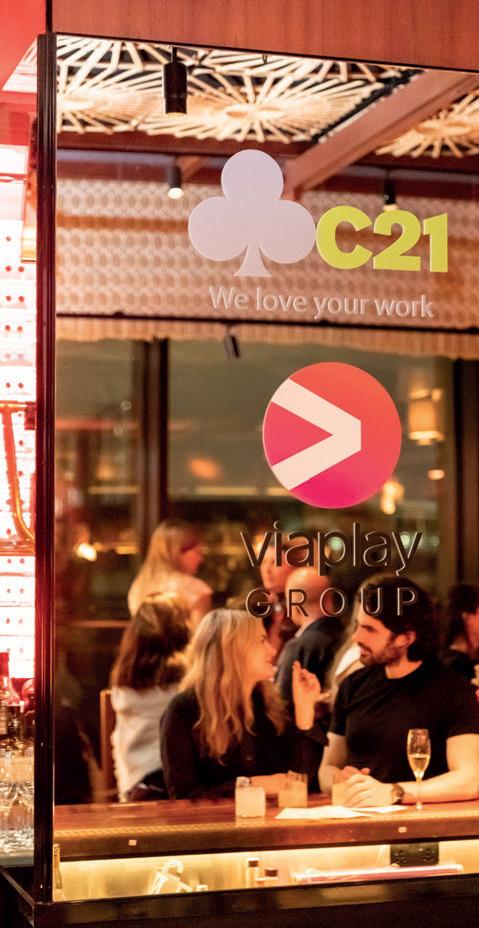
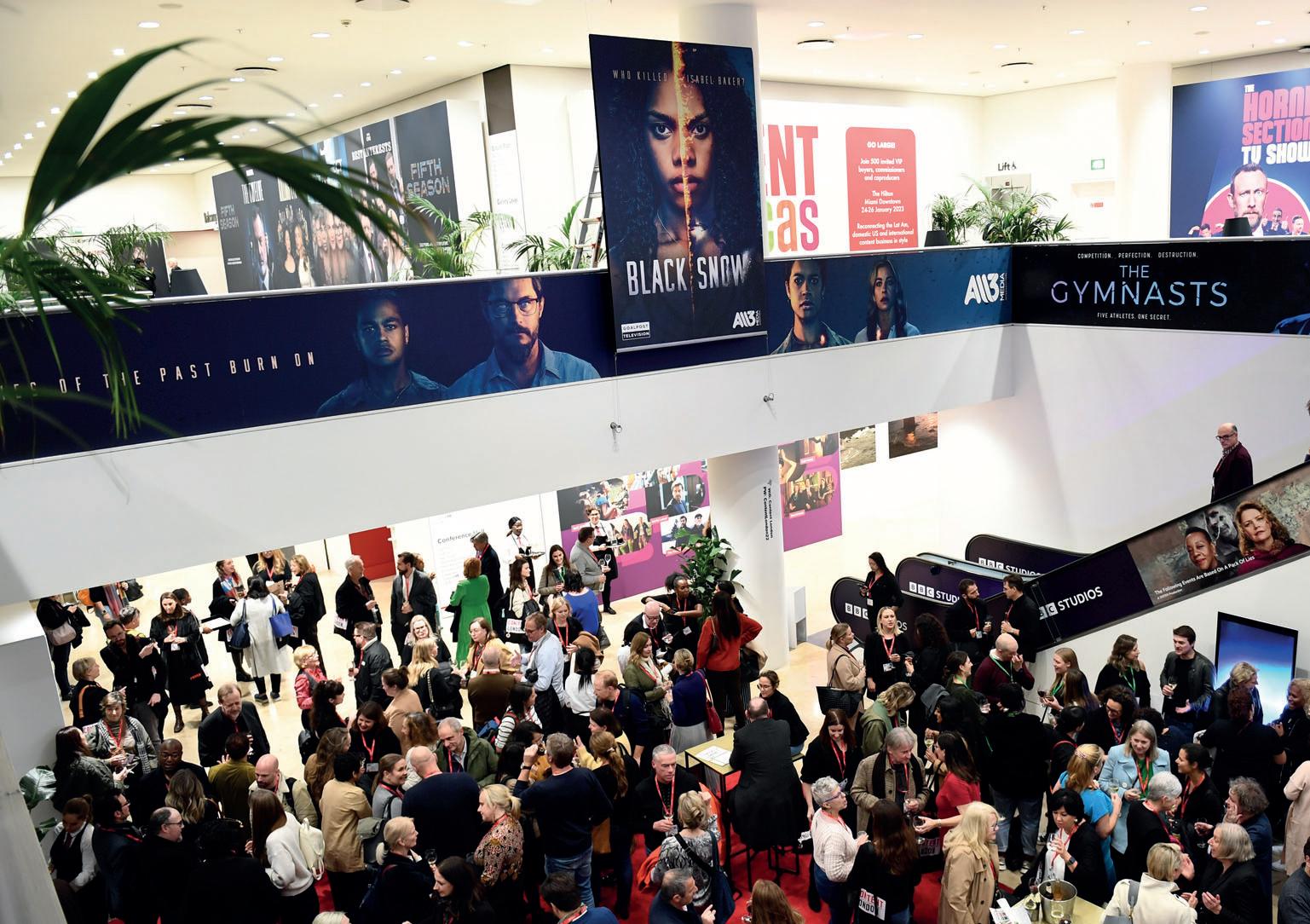
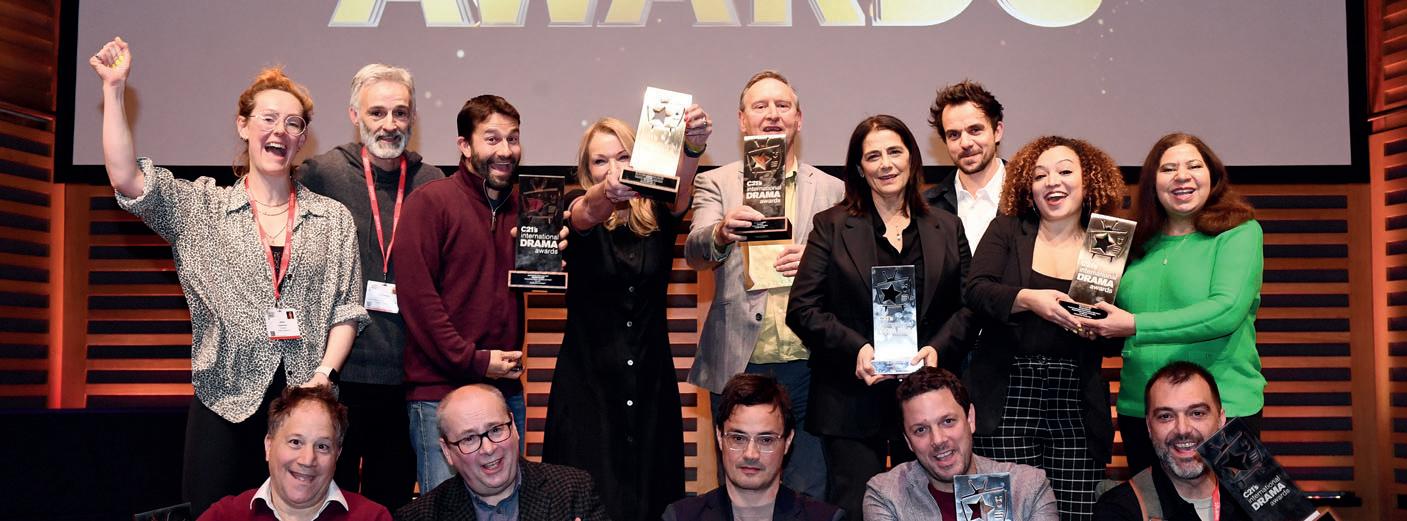


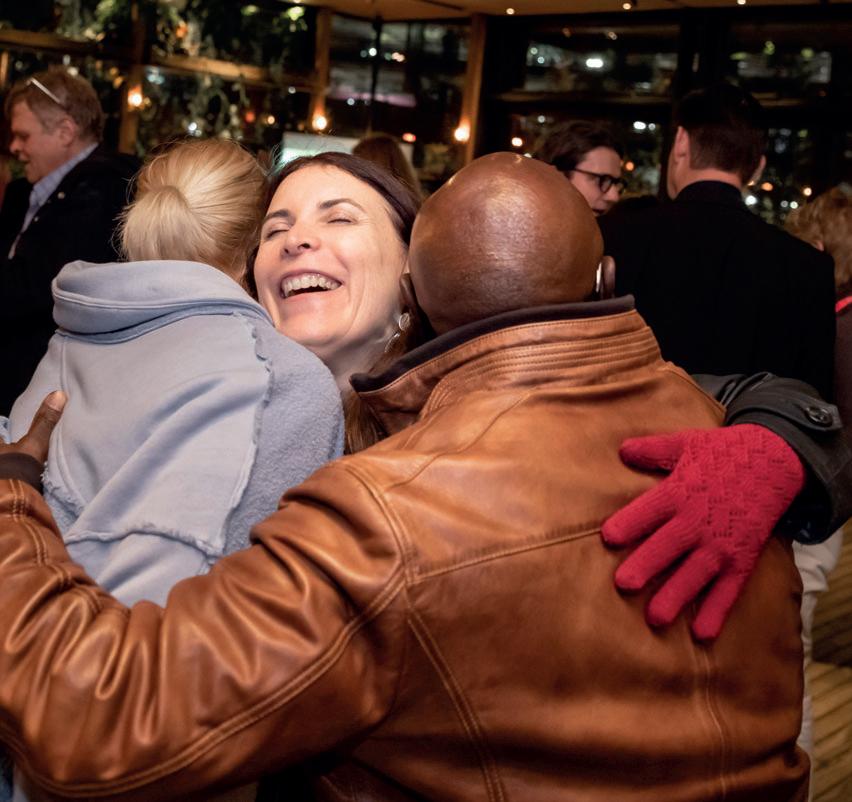

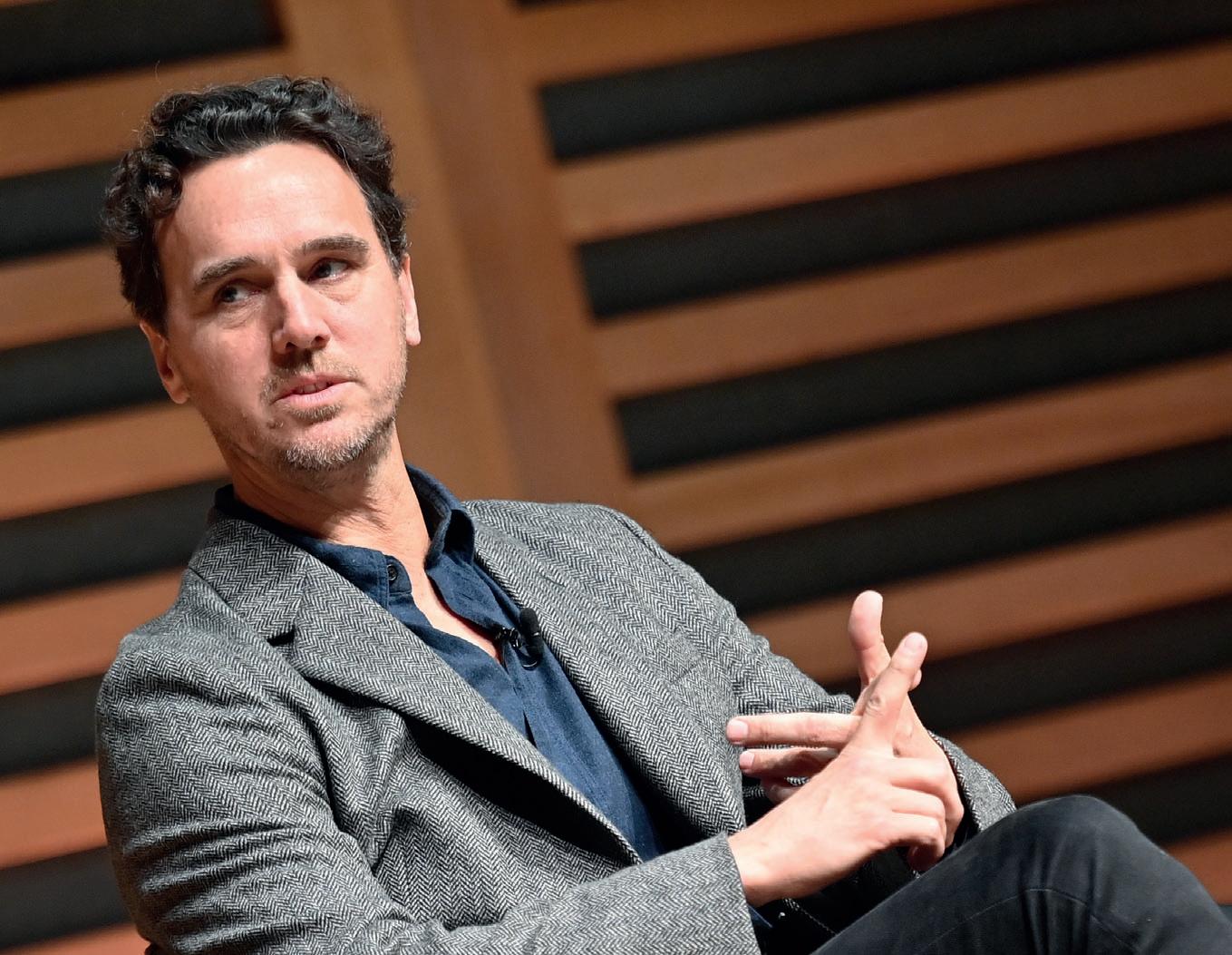
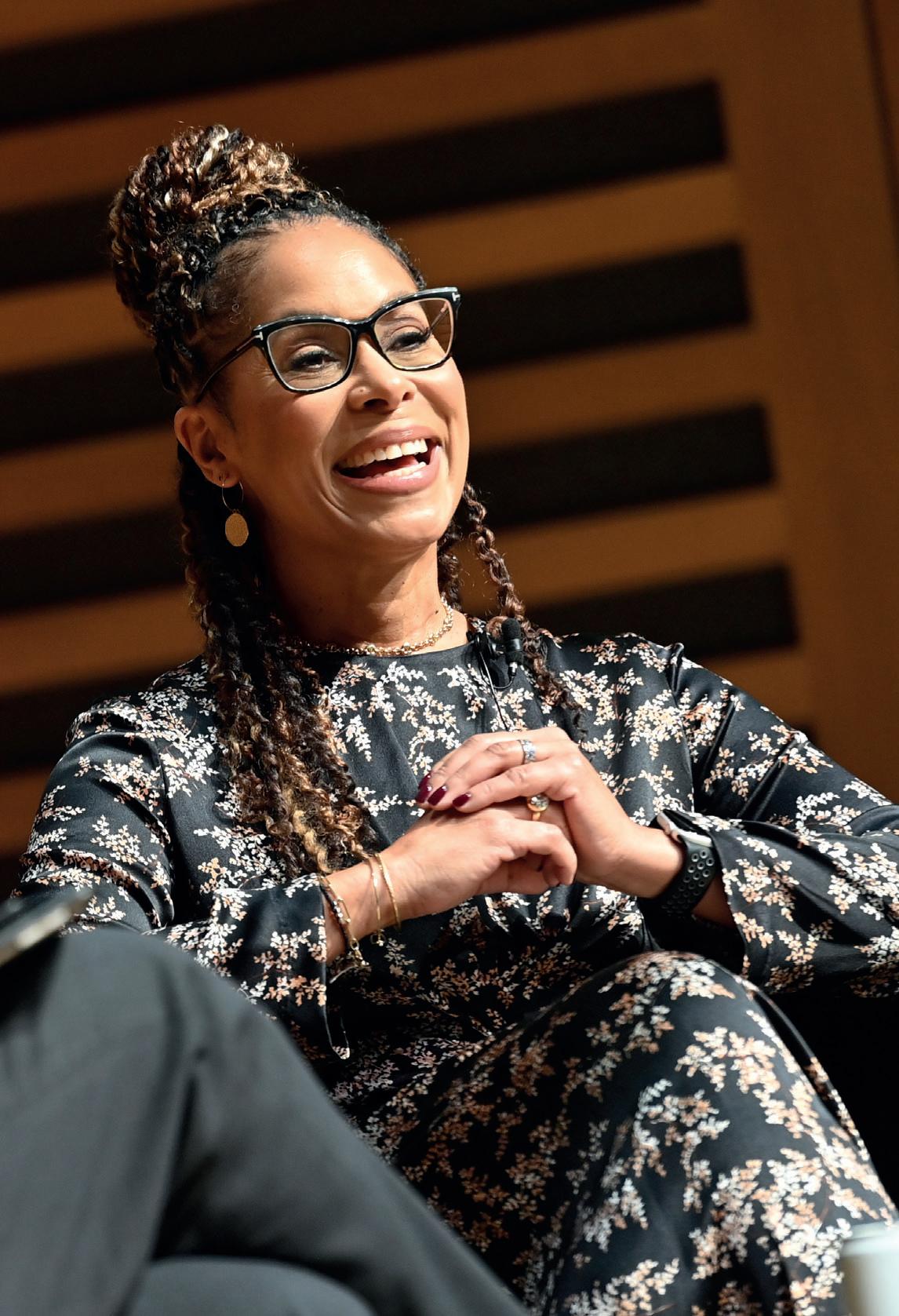
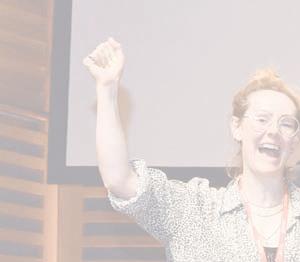

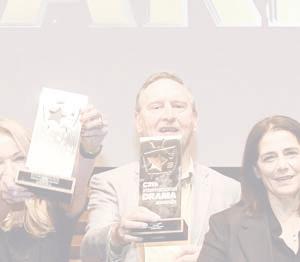
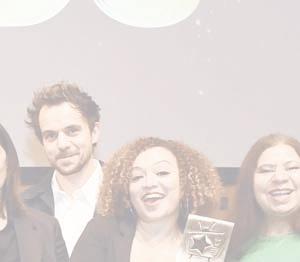



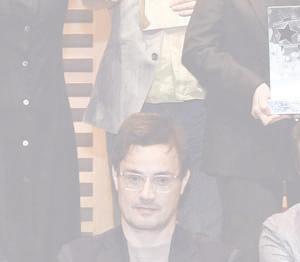
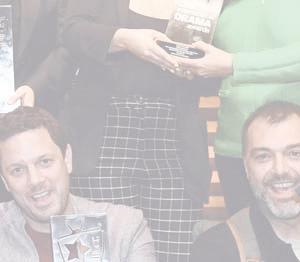


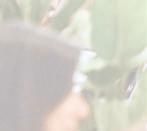










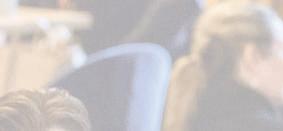

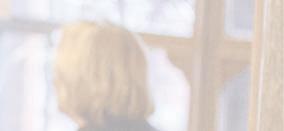

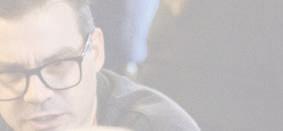

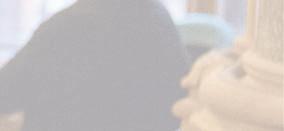

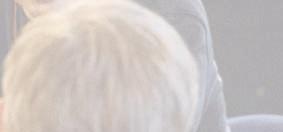
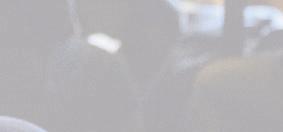

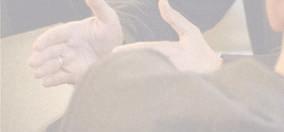
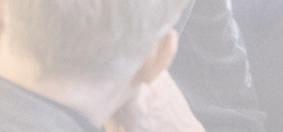













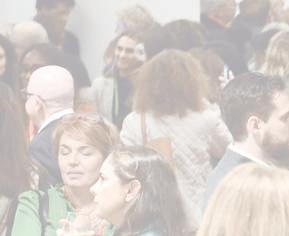


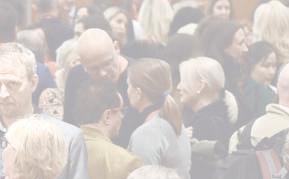
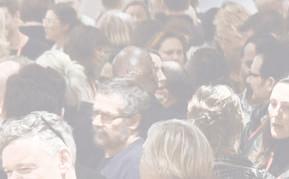
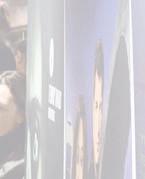
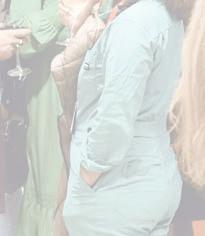
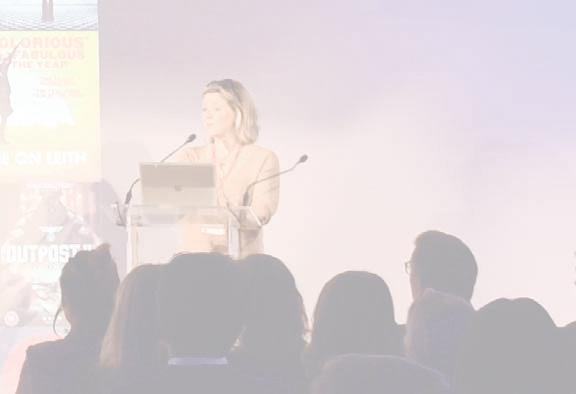









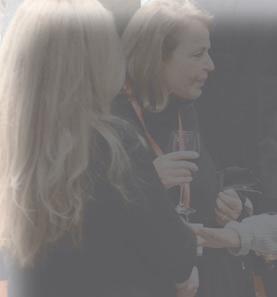
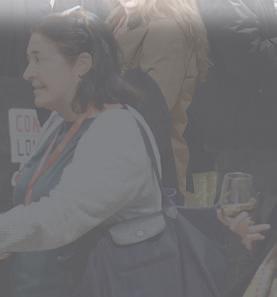

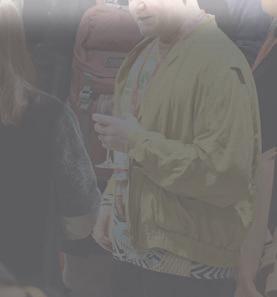


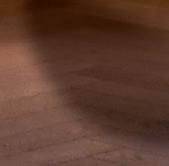







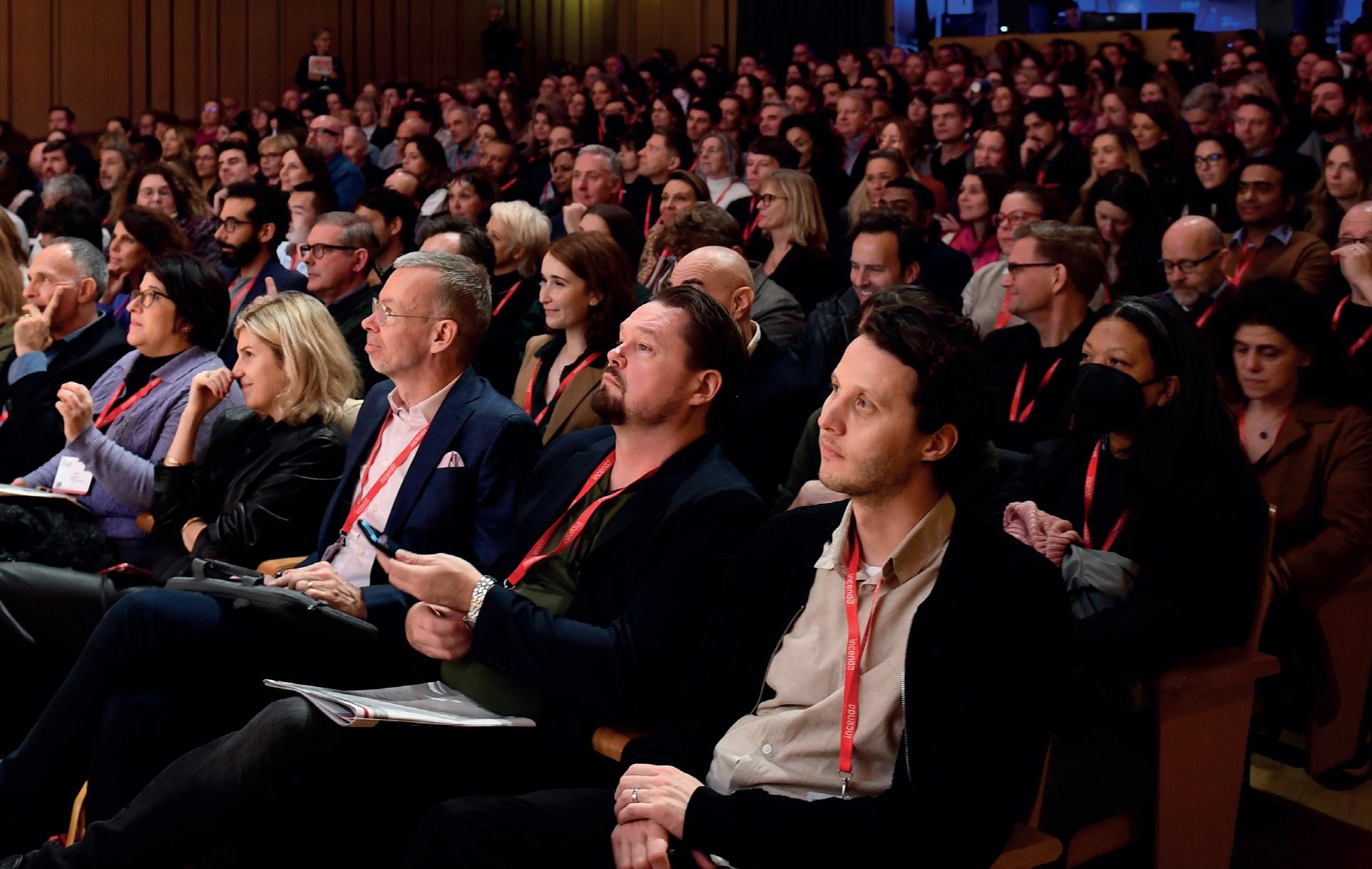
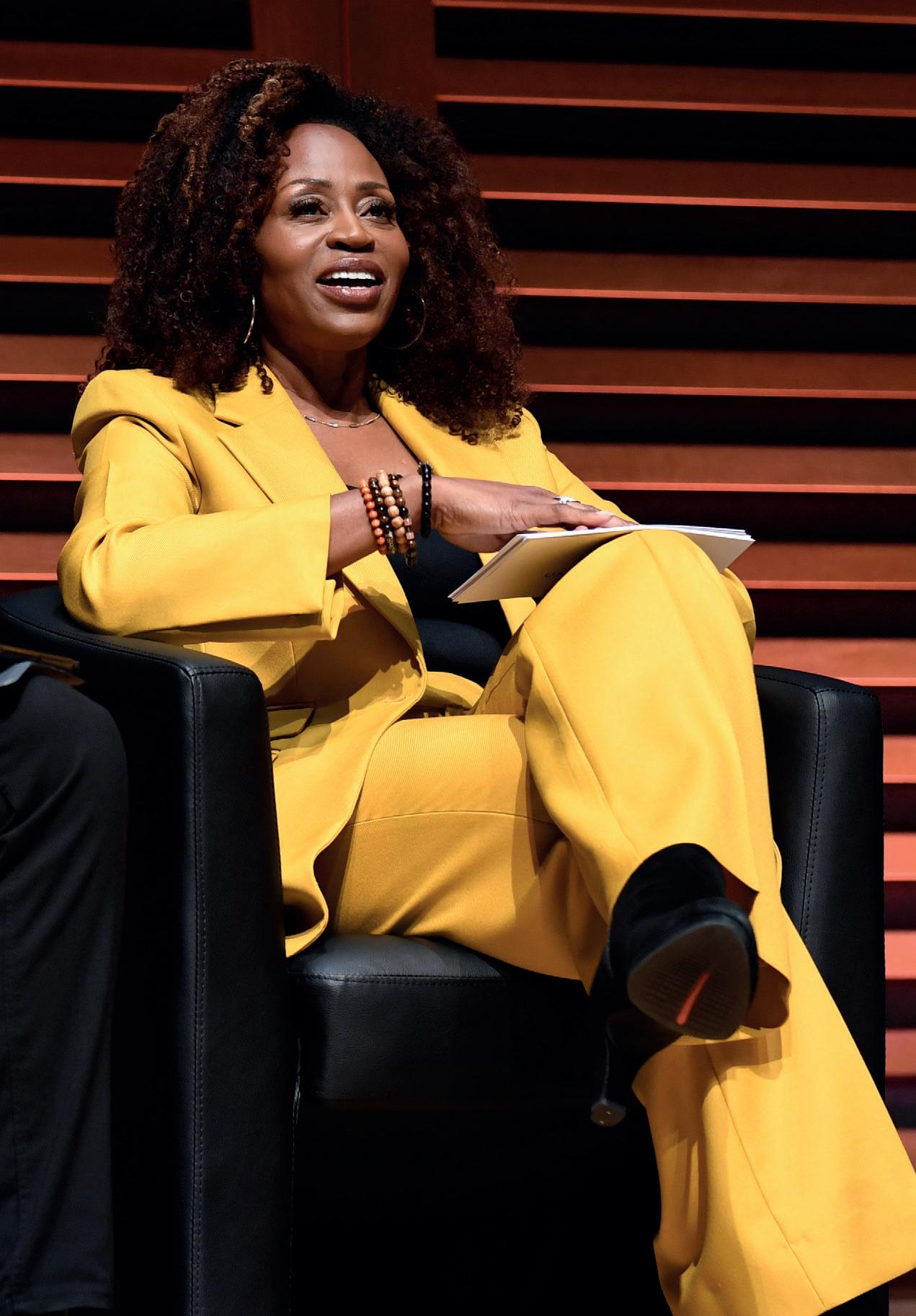
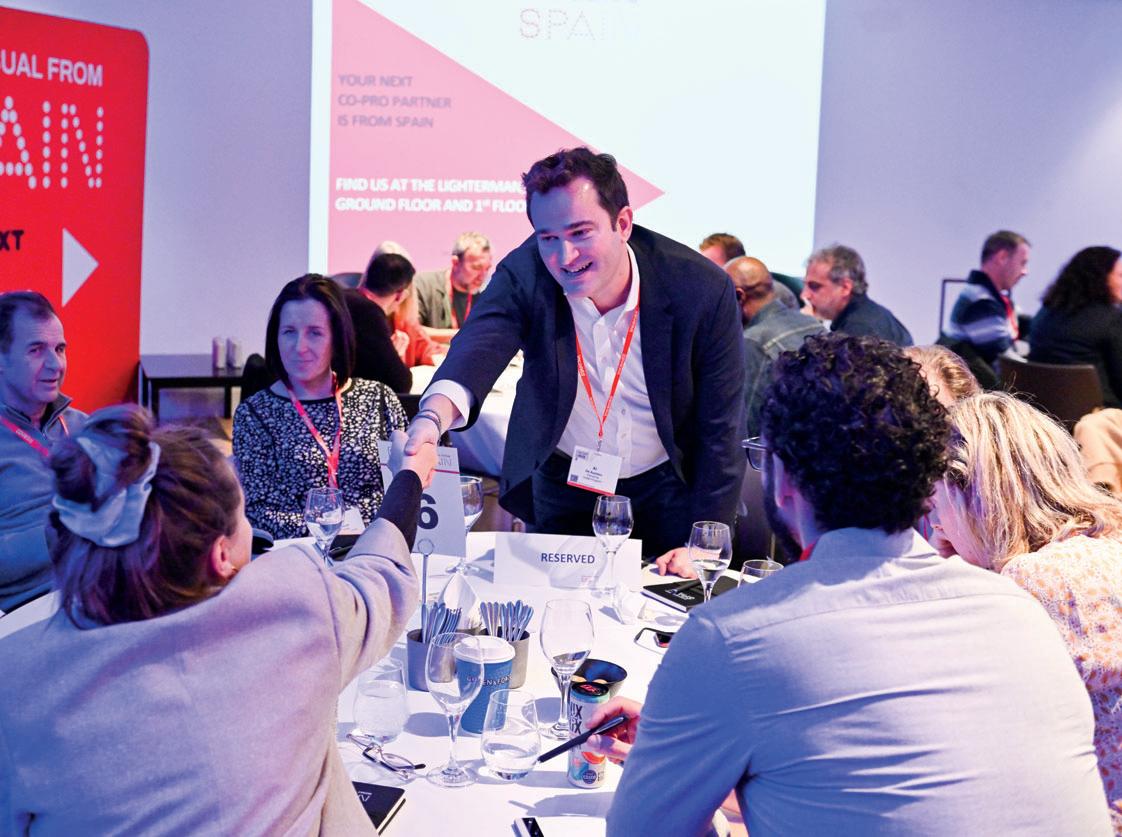
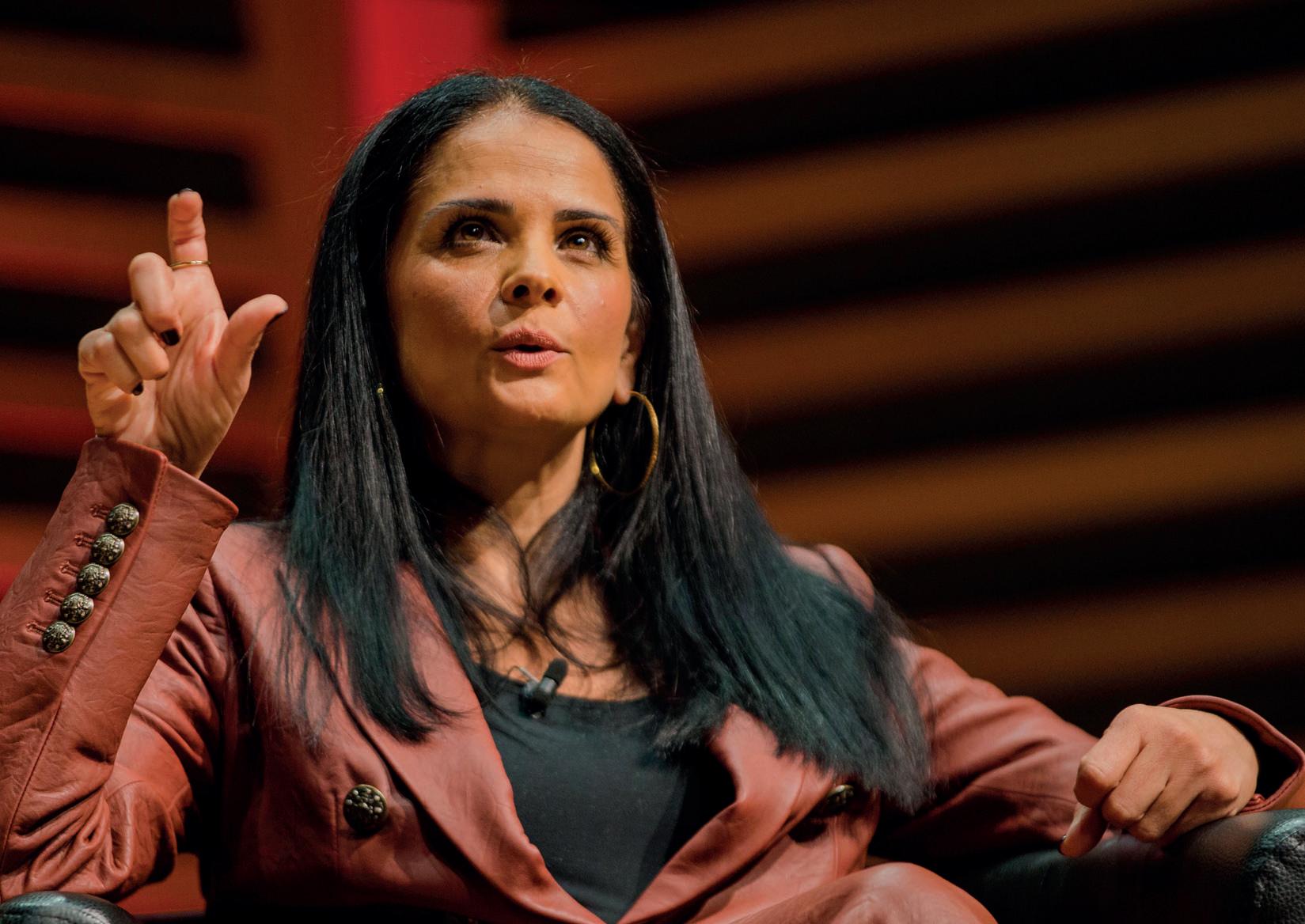
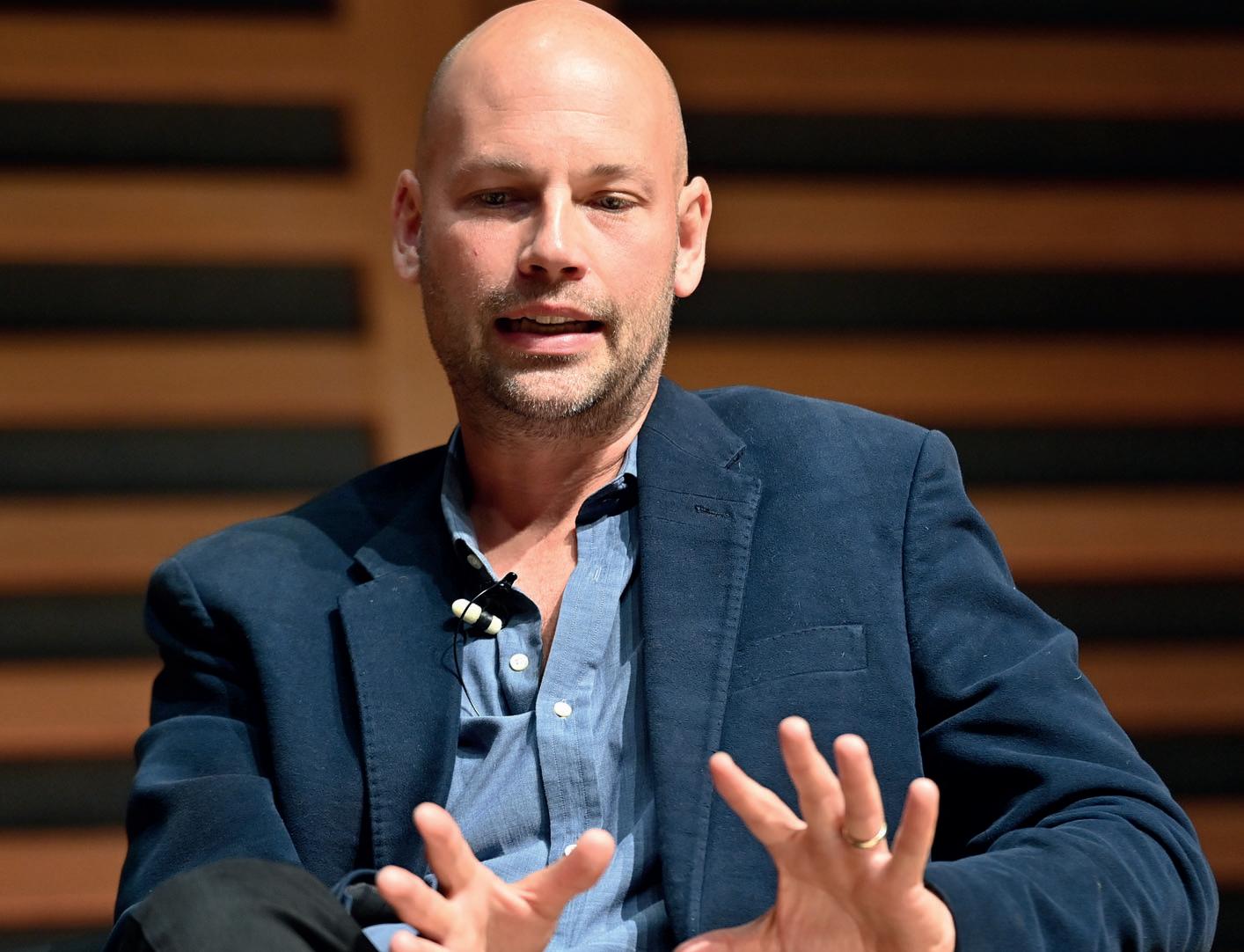
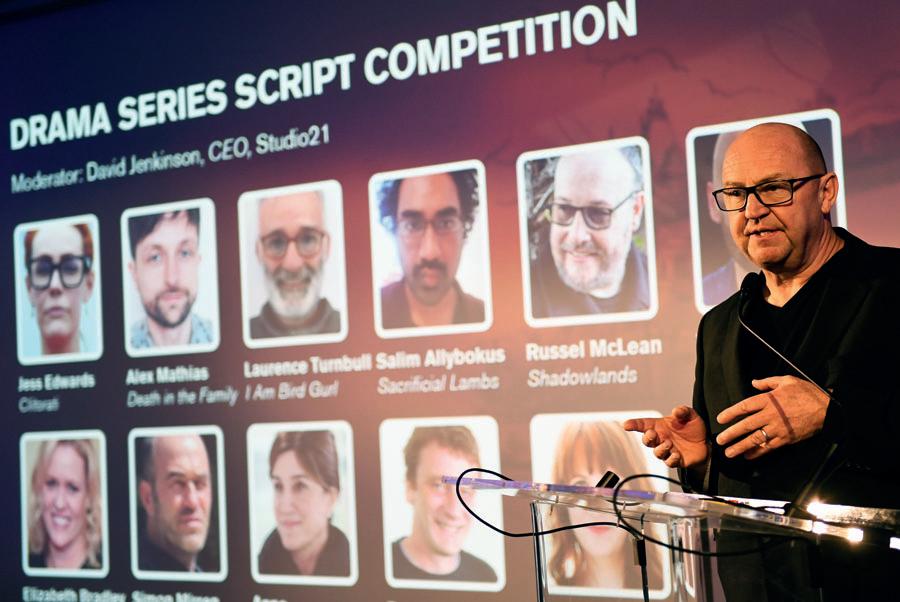










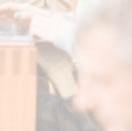

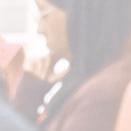




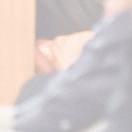

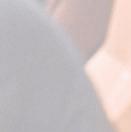










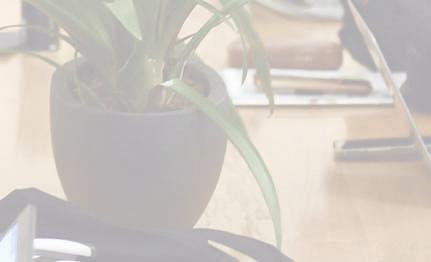
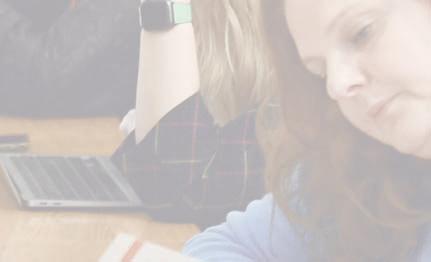
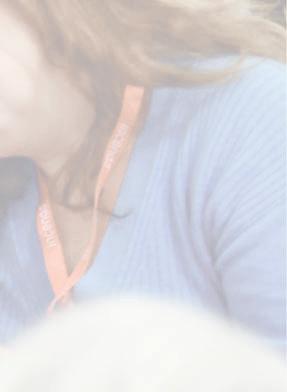
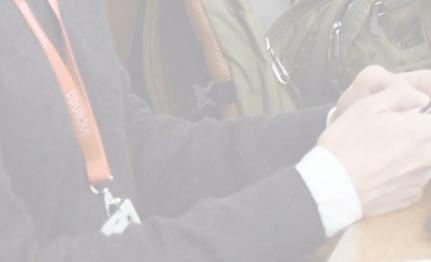
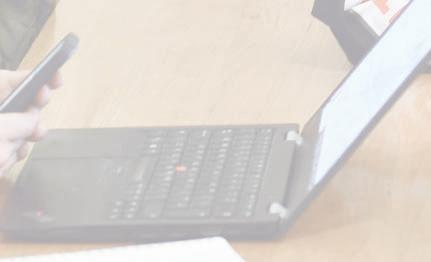



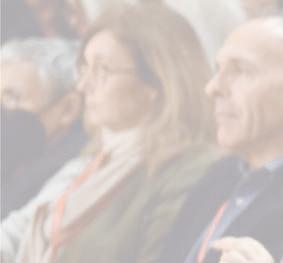
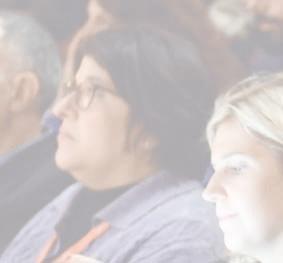
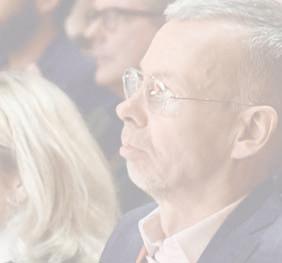
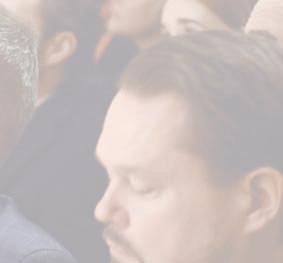
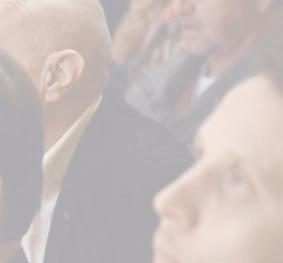

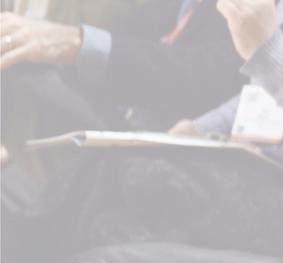
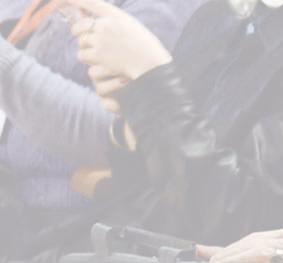

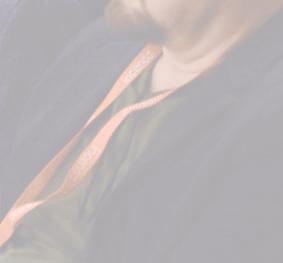



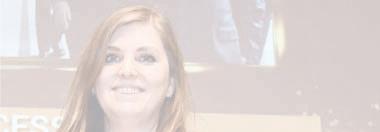

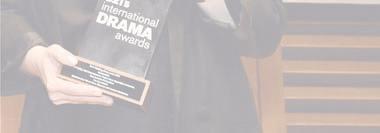

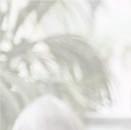



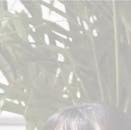
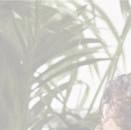

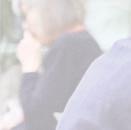



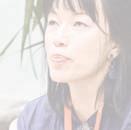

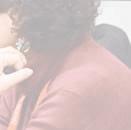





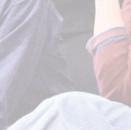

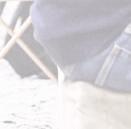

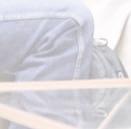

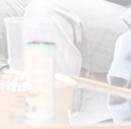
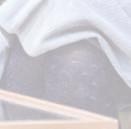

With unscripted content now challenging glossy dramas for primetime slots, industry executives debate the rise of premium factual, feel-good viewing and turning scripted IP into new formats.
 By Neil Batey
By Neil Batey
Arguably, there has never been a better time to be in the business of making unscripted content. Global streaming platforms have a seemingly insatiable appetite for documentaries, while gameshows and shinyfloor formats are being licensed worldwide and reality TV continues to attract the elusive younger audience.
Meanwhile, blue-chip wildlife series now benefit from state-of-the-art filming techniques and technology, while A-list Hollywood talent are putting movies on hold to make premium factual passion projects, such as Lord of the Rings director Peter Jackson’s docuseries The Beatles: Get Back for Disney+ in 2021 – though these trends do have their downsides (see page 56).

It’s a far cry from the days when drama overwhelmingly dominated the primetime schedules of linear channels, and unscripted producers could only dream of attracting as many eyeballs as police procedurals or soap operas.

Certainly, the rise of VoD services have been at the heart of this renaissance. Visit the Netflix homepage and both the Top 10 and Trending Now sections are full of dating reality formats, extreme survival shows, fly-on-the-wall sports docuseries and, of course, true crime.
“Until recently, everybody was trying to find the next Making a Murderer or Tiger King,” says Olivia Deane, senior
analyst at UK research firm Ampere Analysis. “A total of over 2,000 true crime docs have been produced, so it’s still the most commissioned unscripted genre on the streamers, but our research shows that it’s declining slightly.
“The sort of things I’m seeing more of are arts and culture documentaries, factual programming with a sociopolitical focus and – perhaps in reaction to world events and the economic situation – a trend for more lighthearted but hopeful shows. Viewers want to believe that society is a nice place.”

Data collected by Ampere shows that unscripted titles represented 73% of all commissioning announcements in January of this year, with 1,105 greenlights. Of those titles, 34% were documentaries, 30% fell under the bracket of entertainment and 25% were reality shows.
Perhaps surprisingly, national broadcasters are outstripping the streamers when it comes to commissioning unscripted, with the UK’s BBC and Channel 4, plus France Télévisions and Italy’s Rai ordering more shows in this space than Netflix between 2020 and 2022.
The trend for cosier content and socially conscious programming has not gone unnoticed by industry veterans, who view the shift as a sign of the times. “When the world gets too dark, TV audiences seek out lighter stuff such as non-scripted entertainment,” says Bo Stehmeier, CEO at Amsterdam-based distributor and producer Off the Fence, which specialises in factual content such as the Oscar-winning Netflix doc My Octopus Teacher. “We saw that during Covid and we’ll see it again this year, as a result of recession, the war in Ukraine and the TürkiyeSyria earthquake.

“And when people are worried about the world, they lean towards the factual space and documentaries to figure out what’s going on – they’re seeking ‘infotainment.’ People are intrigued by how to enrich their lives, so we’ll see more observational docs where people are learning how to re-train as a plumber, for example, or businessrelated docs on how to operate a corner shop or a bed-andbreakfast hotel.
“I also believe we’ll start seeing more family-friendly content like Married at First Sight and Love is Blind –returnable reality shows with certain format beats.”
These themes were reflected at the recent London TV Screenings, where BBC Studios (BBCS) created bespoke preview events to shop two new formats: gameshow Breaking Point, being produced for RTL in Germany, and Ultimate Wedding Planner
These shows complement BBCS’s existing roster of hit formats such as Strictly Come Dancing (aka Dancing with the Stars), which is now licensed in 61 territories; The Great British Bake Off, which is rapidly nearing 40 local adaptations; and new addition The 1% Club, made by Magnum Media for ITV and being adapted in Germany and Australia.
“A fantastic format is always going to pop,” says Matt Forde, MD of global productions and formats at BBCS. “It’s not a coincidence that Dancing with the Stars and The Great British Bake Off continue to do so well – they’re just wholesome, positive shows. People are enjoying pure entertainment.
“Overall, what unscripted has proven, both in the UK and US, is that for less money, you can deliver as many or possibly more eyeballs than scripted drama or comedy. It really feels like the playing field has levelled up.”
At NBCUniversal (NBCU)-owned Universal International Studios (UIS), senior VP of creative for unscripted programming Ed Havard has delivered two winning formats: the UK versions of reality gameshow
The Traitors and the Mo Gilliganfronted variety show That’s My Jam, both for BBC One.


“ When the world gets too dark, TV audiences seek out lighter stuff such as nonscripted entertainment. We saw that during Covid and we’ll see it again this year, as a result of recession, the war in Ukraine and the TürkiyeSyria earthquake.
Bo StehmeierOff
 the
the
Fence
Both formats arose out of a collaboration between NBCU and the BBC, initiated in 2021, to find unscripted shows that could work on both sides of the pond.
“That’s My Jam and The Traitors have both done very well for us,” says Havard, who previously held senior roles in unscripted at the BBC and Channel 4. “The success of those shows builds momentum, galvanises the market and instils huge confidence in the unscripted space.

“We’re going to see more appetite for dramatic competition shows with narrative arcs and social experiment dimensions. The Traitors is on NBCU’s Peacock platform, and shows like that can be the holy grail for the streamers because they lend themselves to being binge-watched and travel very effectively across multiple territories.”
Another emerging trend is to take scripted IP and
find innovative ways to exploit it in unscripted. Netflix, for example, will soon launch Squid Game: The Challenge, a reality gameshow based on the hit South Korean drama and coproduced by Studio Lambert (The Traitors) with The Garden.
Amazon’s Prime Video, meanwhile, is developing James Bond spin-off 007’s Road to a Million, a Race Across the World-style travel competition show produced by the UK’s 72 Films and MGM Television.
NBCU is set to join the fray soon too. “NBCU is home to some of the biggest global franchises in the world, so exploiting our IP in the unscripted space is a real priority for us,” says Havard. “I can’t give anything away right now, but we’re working closely with our scripted partners to maximise the scripted IP we have within the NBCU ecosystem.”
y for us, says re
Go back 20 years and a great deal of documentary content could be described as fast-turnaround TV, hastily cobbled together from archive footage, ‘talking head’ contributions and a voiceover trying to make sense of the hotchpotch package. Now it’s an entirely different story, with ‘premium factual’ an often-repeated buzz phrase heard at industry events since last year. This genre is typified by carefully curated passion projects, often filmed over several years by acclaimed directors and featuring celebrity narrators, expensive soundtracks and dazzling cinematography – not to mention higher budgets.
At NBCU-owned European media giant Sky, unscripted is high on the list of priorities when it comes to commissioning. “Factual is the
se the within l of bed bled ead’ make ’s an ctual’ dustry d by med tors nsive – not t when he

w
second most important genre to our customers,” says Zai Bennett, MD of content for Sky in the UK and Ireland. “The very best factual is about dramatic storytelling – when you watch this content, it’s just like scripted drama.






“For Sky Documentaries, we’re only operating in a world of definitional pieces, feature docs and miniseries. The factual shows we’ll have on air in 2023 will be beautifully made, director-led pieces that have taken multiple years to develop.”
Recent successes for Sky include last year’s nuclear disaster doc Chernobyl: The Lost Tapes, which also streamed on HBO Max. New projects for 2023 include Zuckerberg: King of the Metaverse, about Facebook creator Mark Zuckerberg’s life and career, and Hijacked, a feature doc that tells the story of Palestinian terrorists storming a Pan Am passenger jet in 1986.
As well as commissioning wildlife shows for Sky Nature, the company also took the decision to make Sky Arts a free-to-air channel, featuring new 2023 projects such as rock music docuseries Brian Johnson & Mark Knopfler’s Good Times, plus 6x60’ ornithological series Painting Birds with Jim & Nancy Moir.
“Sky Arts’ demographic is a bit older and more upmarket,” says Bennett. “There’s an eclectic mix of content, which has allowed the shows to grow and flourish. People love the specificity of detail, being able to get into something deeply and go on a journey.”
For producers and distributors in the factual field, success can often come down to finding a balance between short-run premium projects and more reliable returnable brands. The former attract publicity and acclaim but often represent a slim return on investment, while the latter often go under the radar but quietly pick up multiple commissions around the world.


while the latter often go under up multiple commission At London-based and distribution co that includes both Con Girl (4x60’) Azzopa Paramount+, and brands such as Bo and The Casketeers platf features t “Th can do gam

At London-based development, financing and distribution company BossaNova Media, CEO Paul Heaney has curated a catalogue that includes both premium titles such as (4x60’), about serial fraudster Samantha Azzopardi and made by CJZ for Paramount+, and numerous multi-series Border Patrol, Highway Cops .

“Streaming platforms spend a lot of money to get noisy, access-led miniseries or features that create a temporary spike in eyeballs but are never going to return,” says Heaney.
“They can be great, but you can’t have too many because I don’t want to be in the vanity game, taking a premium title
just so I can preen my feathers and peacock down La Croisette at Mipcom with a bottle of champagne.
“It can be better in the long run to have returnable, repeatable, scalable series such as Extreme Tow Truckers and Border Patrol. Shows like that have emotional involvement and build engagement, which in turn drives audiences. Those brands might not be as fashionable as noisy premium factual shows, but at least the viewers aren’t going to just disappear after three or four episodes.

“Looking into my crystal ball, I can see spin-offs of successful ongoing brands being in demand, plus more factual shows about societal issues such as the environment and climate change. Male-skewing factual entertainment could be big because there’s not enough supply in that genre.”
With the industry this year facing economic headwinds and a possible US writers’ strike, commissioners are less likely to be greenlighting expensive dramas. As a result, cheaper unscripted content is likely to be in great demand as the year goes on.

However, execs warn that this feeding frenzy will lead to huge competition among producers and distributors to super-serve the market.
“I always used to think this business was like a bear pit, but now it’s more like the UFC,” says Heaney. “I hope we can help commissioners’ budgets go further, but at the same time it’s getting harder to finance projects. As regards the economy, there were some problems last August, September and October, but it’s really picked up since November and I can’t see it slowing down. At BossaNova, we’ve done more revenue in the last two months than all of last year.”
Others believe unscripted execs can’t afford to be complacent and may yet find their own shows’ budgets constricted, mirroring the cuts in drama finance. “We’ve had around eight years of booming budgets – but a price correction is coming, if it isn’t already here,” says Stehmeier. “Recently, everything needed to be €800,000 [US$851,000] an episode, while back in the day we could make very solid TV for €90,000 an hour. I think there will be an increase in demand for anyone who can produce for around €175,000 to €200,000 per hour.
“New types of storytelling will emerge from that as you have to deal with the craft differently, but for those who can work in that budget bracket, the boom in unscripted can go on for at least another five years.”
“ I always used to think this business was like a bear pit, but now it’s more like the UFC. I hope we can help commissioners’ budgets go further, but at the same time it’s getting harder to finance projects.
Paul Heaney
BossaNova Media
C. I we can p commissioners’ dgets go further, e der to jects.
l aNova

Danish broadcaster TV2 is doubling down on weekend entertainment and is on the hunt for reinvented primetime formats that appeal to the whole family.
 By Gün Akyuz
By Gün Akyuz
Hot on the heels of its local version of international format hit Traitors, Denmark’s TV2 is on the lookout for the next big entertainment formats for its weekend line-up.

The commercial public broadcaster is currently underway with a new season of X Factor on Friday evenings.


The veteran singing competition format brings in one million viewers across linear and on demand.
“It’s a big show on both streaming and linear TV, which is also live viewing on our VoD platform, so it really ticks a lot of boxes,” says Marianne Bjørn, TV2’s manager of unscripted formats. “Very few shows nowadays cross that magic line in Denmark.”
TV2 has been rolling out a digitalfirst strategy for a number of years with SVoD platform TV2 Play. While

on-demand viewing is growing steadily, live streams of the group’s linear channels account for 50% of TV2 Play’s consumption, driven by content such as news, sports and live events, which all attract a broader demo. In Denmark, 50- to 60-year-olds form the largest demo in terms of minutes consumed across all streaming services, according to audience research group Nielsen.
While X Factor does well across linear and on demand, other TV2 entertainment shows, such as its local version of Dancing with the Stars, work better on linear.
This is down to a combination of factors, explains Bjørn. “The entertainment shows that don’t work on demand are those that are too focused on the result, such as quizshows, or are very much live shows. We need to soften up the studio elements or shake things up a bit,” she says.
shows. We need to studio elements or a X Fa format hit for TV2
The Great British Bake Off, Denmark’s biggest entertainment show. Bjørn says she’d happily snap up format rights to the latter should they ever become available.
The exec, who was head of content and acquisitions at Banijay Nordics before joining TV2 in 2021, describes herself as the broadcaster’s “international eyes and ears” for formats.



Recent changes to TV2’s acquisitions team, led by Anders Leifer across scripted and content partnerships, resulted in acquisitions being embedded within the broadcaster’s centralised commissioning department. Previously, acquisitions sat within TV2 Play’s content department.
he X
Alongside X Factor, another big format hit for TV2 is its adaptation of UK show Taskmaster, from Avalon, airing locally as Stormester. The programme succeeds across linear and ondemand, says Bjørn.

Avalon, a Stormester The Bj Made local Sto to six seasons TV2’s version 20.0 up against DR
Made locally by prodco Metronome, Stormester has run to six seasons so far, with two more already in the pipeline.
TV2’s version airs on Saturday nights at 20.00, when it goes up against DR1’s adaptation of
“We work closely together and have genre-focused meetings where commissioners and the heads of content and rights departments discuss their needs and what the opportunities are in entertainment, reality, lifestyle and factual,” Bjørn says of the new setup.
On the factual entertainment and reality front, TV2 is a window for a variety of international and local formats. More recently, however, there’s been an increased focus on paper formats developed locally by prodcos and tailored closely to TV2’s needs.
This year has seen the launch of local fact ent format Til salg i 100 år (For Sale for 100 Years, 8x30’), in which two realtors are tasked with

finding buyers for houses that haven’t sold for a century combined. Bjørn says the format, created and produced by local prodco Laud People, is being prepared for a big international launch. Meanwhile, premiering in February was Petra slukker strømmen (Petra Cuts the Power). In the two-part factual experiment from Nordisk Film TV, high-profile local TV2 host Petra Nagel and her family cut the power in their home and tried to live off-grid for 20 days.
With all of TV2’s latest reality-driven commissions for 2024 sourced locally, and all of them high-concept, Bjørn observes: “We need certain values and we’re not always finding what we need internationally. There are so many reality and adventure formats, driven by the big streamers, that no one is focused on entertainment.”
When it comes to reality and lifestyle formats, a key concern for TV2 is how contestants are treated, says Bjørn. “With reality, we’ve worked a lot on our values and history, and we treat contestants with solidarity, with purpose and meaningfulness,” she notes, adding that TV2 won’t do dating gameshows that feature prize money, for instance, and instead takes formats like The Bachelor, which is more focused on finding true love. A local version of The Bachelorette is due to join the line-up this spring.

“In lifestyle, we look for unique and engaging takes that can tell stories in a new way, as seen in All3Media format Sort Your Life Out, which is coming back for a second season,” says Bjørn. In terms of new lifestyle ideas, TV2 is searching for fresh takes on health and economy, she adds.
space has to work on linear and streaming. For the flagship TV2 channel, this rules out quiz formats, as they’re too closed-ended and focused on the result to work on-demand. However, on entertainment-skewing TV2 Charlie, quizshows such as Who Wants to be a Millionaire? and Wheel of Fortune still bring in linear viewers, Bjørn notes.
Top of Bjørn’s list is a new show for Friday nights, and formats will need to have the scale of its Friday night juggernauts Dancing with the Stars and X Factor, she says. “It’s really a challenge to find what’s next in that genre, because we tried The Masked Singer and it didn’t become the big success we hoped for. For TV2’s Friday night entertainment, it’s really important that it feels relevant to the viewers and there’s something at stake for the contestants. It also has to be packed with emotions and bring together the family.”
reality and entertainment, with a large diverse ensemble cast,” says Bjørn. Made by Fremantle-owned Blu, TV2’s version of the Dutch format is due to start recording later this spring and is expected to launch in the second half of the year, in a yet-to-be-decided weekend slot.
Bjørn envisages that TV2’s next big Friday evening format could be a shiny-floor show, but asks: “Is there a different way to do Friday night entertainment?”




Danish producers have already been briefed over TV2’s entertainment requirements, says Bjørn. “Historically, those kinds of slots often go to something with a track record, but we could be open to a paper format, especially since we know our needs are a bit different from what the market can offer.
Distinguishing the different tones of TV2’s entertainment across the weekend, Bjørn says: “Friday is more ambitious and bigger in scale, whereas on Saturdays it’s a bit more fun, with lots of laughs.”
The exec attended the London TV Screenings in March with a specific mission around “cracking entertainment.”
“It’s very much about entertainment for me,” she says. “There are so many reality shows on the market right now. Yet another survival adventure show isn’t going to make me excited. Instead, I’m really curious about reinventing entertainment.”
As well as TV2’s big Friday night entertainment brief, Bjørn flags up weekday entertainment needs for TV2 Charlie and feelgood Sunday night entertainment on flagship TV2.
In terms of advice to producers, Bjørn says: “We are open to listening to ideas, and from a very quick pitch, I can tell you if it’s for us or not. It’s very much about hitting the DNA of how we see our viewers and how we treat our contestants, and also understanding that we are both VoD and linear. It needs a special kind of storytelling to hit both.”
, second season,” ng my, adds ate, ats of scale ail for TV2. “It’s d we’re relying tested formats,” she adds: “We’re eas.”

With the big focus now on renewing its entertainment slate, finding new entertainment formats of scale remains the holy grail for TV2. “It’s very expensive and we’re relying heavily on tried and tested formats,” says Bjørn, though she adds: “We’re searching for fresh ideas.”
Moreover, while a number of TV2’s biggest formats, such as Farmer Wants a Wife, and Dancing with the Stars still going strong, they’re now ageing. Bjørn says: “We need fresh storytelling and we need to stimulate the creation of new shows globally, within the worldwide ecosystem.”
TV2 will be aiming for fewer, bigger shows across its entire content slate, Bjørn continues. Moreover, everything TV2 commissions in the entertainment
a number of s, such as The Block Stars, are ey’re We need we need eation within the .” for fewer, its entire continues. ing TV2 ntertainment
Traitors, a hit for the BBC in the UK last year, is one example of this new direction. “It ticks a lot of boxes, firstly as a non-studio-based show, but also as a crossover between
, y crossover

“The biggest difference is that we need a ‘why’ in our entertainment shows. We want shows that are embracing and warm, and not just for the fun of it. We need there to be something at stake, lots of emotions
g, and preferably a fascinating jo j urney that you can follow as a viewer week after week.”
Foreign producers and/or format creators who don’t already have a Danish prodco attached can come directly to Bjørn, who will be able to advise on local Danish producers to work with. “If the idea is really right for us and it’s a strong paper format, we could develop it together and couple up with a producer, because we don’t produce anything in-house,”
pg she says.
“ There are so many reality shows on the market right now. Yet another survival adventure show isn’t going to make me excited. Instead, I’m really curious about reinventing entertainment.
Marianne Bjørn TV2Stormester, the Danish version of Taskmaster























Gladiators is returning to UK screens certainty sk averse ey were ng was a


The current climate of economic uncertainty is making broadcasters even more risk averse in their commissioning than they were already – and a lack of risk in commissioning was a frequent criticism even when the going was good.

For new indies without a track record and/or companies trying to pitch a paper format in the current market, the outlook is tough. A spate of reboots and remakes is currently underway, with BBC One doing Survivor and Gladiators, ITV bringing back Big Brother and so on.


Two of the most experienced format execs, Frapa board members Hayley Babcock, who left A+E to form her own consultancy last year, and Lisette van Diepen, who advises All3Media in Germany and Benelux, have been outlining their strategy for getting a paper format off the ground as a new company.

n g t execs, who left ear, and Media in ng their pproach herlands herlands, a did
“In my current role, the people who approach me most of the time are based in the Netherlands or Germany,” van Diepen says. “In the Netherlands, you’re in the lucky position that Talpa, a major broadcaster, has a specific fund for indies and single creatives to pitch their paper format ideas for potential investment. In Talpa’s case, it would result in sharing the IP 50/50.”
Babcock points out that other territories have similar funds for pitchers, via Fox in the US or ITV in the UK, for instance. This is the best route to take if you don’t have tape or a sizzle reel and are purely pushing a paper format, because the fund is there to pay for the development of such materials.
“Barring that, if you’re an individual, go to a production company,” Babcock says. “If you have a cooking idea, go to production companies that are established in that area. Be willing to share, because you want to walk into a broadcaster or streamer and have their trust that you will be able to produce the idea you brought to them.”

A common mistake, according to van Diepen, is pitching an idea similar to one already in existence, or one that would compete with something else in the broadcaster, producer or distributor’s catalogue. “Before you go there, make sure you do your research into the IP in house,” she says. “It’s disappointing for me as a buyer to be pitched something with all the passion in the world and have to say, ‘Did you see this show in the All3 catalogue that has been airing in this territory for six seasons?’ It must be difficult to be an indie in Estonia to pitch to an international company, but there are cheap ways to make sure you’re aware what’s going on internationally. C21 has a searchable database.”
A format is a definable, repeatable, protectable thing that has certain rules and structures. Your pitch needs to have materials that lay those things out. “It’s like a recipe book. You want the recipe to be understandable and easy to follow. You want people to get the rules of the show, the beats of the game, and understand the structure of an episode and the arc of a series, what the stakes are,” Babcock says.
This does usually mean creating a sizzle reel, though the expense of this development stage

can be avoided by taking a paper format to the funds available from ITV, Talpa, Fox and others as mentioned above, or reduced by using found footage and clips from existing shows to illustrate points.
“It needs to be clear, not too messy. I would suggest you try to keep it basic, simple, not too many words. Make it concrete, relevant and sharp,” van Diepen says.
A pitch deck, laying out the basic steps and recipe for the format, will have to be left behind at the end of the pitch. Babcock says that, in an ideal world, you’ll have two versions of these: a basic outline and a more detailed version.
“In the first, there should be an economy of words on every slide – just give the basic gist of what you want the buyer to know,” she says. “Think about the questions they will have about how it works: what happens in each act? Is there a series arc or is it a standalone show? What’s the end goal? Who are the key players or participants?
“If that person is more interested and wants to take it to a department head, they’ll ask for more granular detail about things like how many weeks of pre-production will be required. You might want a more granular deck available to send to those people and only those who want to engage with you and craft a deal. Remember, most buyers don’t want a lot of words on the page.”
“Make the pitch memorable and fun,” Babcock adds. “If you’re pitching a cooking show, go in there with some food. If you’re pitching a game, take it with you to play. If it’s a fashion show about recycled clothing, go in dressed in a fabulous outfit that is second hand. If you’re doing a relationship show about your ex, bring your ex. Make it memorable, be passionate and be crystal clear about how it works.”
As ever, timing is everything, and a degree of luck is required, but both execs caution against being put off by rejection in an industry of a thousand ‘nos’ for every ‘yes.’
“It must be frustrating to be pitching a gameshow and get the same answer that gameshows are dead or not working well right now, but a genre is never dead,” van Diepen says. “The more people tell you they’re not buying gameshows, the more you have to continue to pitch because you’re about to get a commission for a gameshow – it always goes up and down.”
Babcock concurs, and offers a famous example. “If you have seven channels in your territory, six
might not want a gameshow but the seventh wants to do something different so just might,” she says.
“The guys who created Who Wants to be a Millionaire? pitched that show for five years over and over and could not get a bite. They would pitch it, take critique and notes back with them and tweak it, but the basic DNA of the idea they stuck with, waited for commissioners to change and went back and pitched it again. They waited for a change in the marketplace. They never gave up, and we know how that ended for Celador.”

She adds: “A commissioner will try to poke holes in your idea and say they’ve seen it before. You’ve got to stand up for it and say, ‘This is different because…’ or, ‘That problem won’t happen because this solution is baked into the rules.’”
“Know the budget it will require,” Babcock says. “Don’t be unrealistic about how much it costs to make the show you’re pitching. If it’s going to be costly but you stand behind the concept 100%, that’s fine. Nobody is saying make it less expensive, but know its cost and why it deserves that budget. Know your broadcaster. Don’t go to a small channel with lower budgets and pitch something that is right for ITV primetime or TF1 or NBC or Netflix.”

Concluding on an optimistic note, van Diepen says: “Buyers are under immense pressure to get the right content, so don’t assume the power is always with them. It’s an extremely competitive market in all of the territories I acquire for. They’re under just as much pressure to get involved with the right IP as you are to pitch to the right party.”
“ Make the pitch memorable and fun. If you’re pitching a cooking show, go in there with some food. If you’re pitching a game, take it with you to play. If it’s a fashion show about recycled clothing, go in dressed in a fabulous outfit that is second hand. If you’re doing a relationship show about your ex, bring your ex. Hayley Babcock
“ The more people tell you they’re not buying gameshows, the more you have to continue to pitch because you’re about to get a commission for a gameshow.
Lisette van DiepenBBC One is preparing a new version of Survivor Who Wants to be a Millionaire?, now one of the world’s most successful formats, took years to find a buyer
RTBF, the Belgian Public Service Media is establishing itself as a leading producer of innovative and trendy formats. The network's rich catalog includes both format and ready-made content, catering to a broad range of audiences. Among its popular shows, "The Yurt" offers a unique "back-to-nature" experience to three celebrities as this program challenges the participants to abandon their typical habits and adopt environmentally sustainable practices. "The Yurt" represents a new approach to a highly relevant topic in today's world : energy preservation and the climate emergency. This entertaining show not only raises critical questions but also presents solutions in a humorous and engaging manner.


"5-Star Village" which showcases celebrities competing to discover the most beautiful villages, highlighting the regional Additionally, village residents actively participate in the competition during a challenge.






Or discover the talent contest and cooking show, "Chocolate Stars", which once again demonstrates Belgium's creativity around its famous specialty : chocolate. Contestants compete in front of a distinguished panel of judges to become "The Chocolate Star".



According to Tuyet NGUYEN CANRY, RTBF's Head of Distribution "Under the RTBF Creative umbrella, RTBF is offering a wide range catalog with a commitment to delivering quality content that resonates with viewers worldwide. From scripted to unscripted, there is something for everyone. RTBF is a trusted source of entertainment for all ages and interests with the Belgian unique creativity touch".

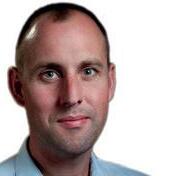
The Trafalgar Tavern, in London’s naval district of Greenwich, isn’t so much a pub on the River Thames as a pub in the River Thames. The water’s edge laps against the building’s north side, spray splashing up past the windows whenever the Thames Clipper commuter boats speed by.
Built in 1837, it’s only 61 years younger than the US, and is therefore exactly what the American television audience thinks of as a traditional, English pub. It’s also vast. On a weekend, it can feel like half the city is here for Sunday lunch. Two huge floors of sprawling bars, lounges, restaurants and rooms, which one sunny August day in 2022 is just
During filming for the 20th season of Bravo’s Top Chef in London, Clive Whittingham asked Magical Elves’ Casey Kriley and NBCUniversal’s Barrie Kelly about keeping a classic format relevant.

as well because… Top Chef: World All-Stars is here.
Bravo’s long-running culinary format is now airing its 20th season, and locations are a big part of keeping the show up to date, according to Casey Kriley, co-CEO of Tinopolis-owned Magical Elves, which came up with the format when it was run by founders Jane Lipsitz and Dan Cutforth.
“It’s a new city every season and that becomes the final cast member,” Kriley says. “What you can learn about the food scene, be it London or other unexpected places, relative to what you might perceive the food scene to be there is a big part of the viewing experience.”
“What sets Top Chef apart from other cooking shows is the casting,” Kriley adds. “We’ve also really pushed ourselves to look anywhere and everywhere for exceptional chefs. We lean heavily on the chef community to recommend people and find talent off the beaten track.




“We also adapt the show based on what we’re seeing in restaurants and over the last few years we’ve seen a move away from the traditional culinary school route of a chef rising through the ranks towards chefs leaning into their cultural history, background and heritage to inspire their dishes. That’s something we’ve pushed for in Top Chef’s evolution. It’s a mix of who you
Top Chef: World All-Stars

think should be competing and who you think will bring a different culinary point of view.”

Today the chefs are being challenged to re-imagine some of the UK’s stodgier pub classics. Divided into teams of two, they sit in the riverside beer garden and take their pick from a blackboard offering shepherd’s pie, a full roast meal or school dinner staple toad-in-the-hole (which, for those unfamiliar with British grub, does not actually contain toad). For the World All Stars format, winning chefs from prior Top Chef seasons all over the world are brought together to compete and, despite a day touring the city and tasting the dishes, there are some bemused faces.
“There is a constant debate in development between the producers and Bravo about challenges we can have fun with and be more playful, but at the same time being careful not to jump the shark,” Kriley continues. “Over the last three or four seasons we’ve leaned into the idea this is the equivalent of a culinary Olympics. Instead of trying to create unnecessary drama on the show, drama can be borne out of somebody trying to achieve greatness and the roadblocks they hit in the process.”
The show itself is just getting over a considerable barrier of its own in the form of the Covid-19 pandemic. The sheer number of people and amount of equipment required to film a single episode of a show like this hits you as soon as you round the corner and approach the pub. Students
THOUGHT LEADERSHIP: Barrie Kelly in L Elv Ke Channel21 International | Spring 2023 THOUUGHGHT T LE LEADADERERSSHHIP: Sustaining formatsfrom the nearby university eye the spectacle with intrigue as they pick their way through a set that has spilled out on to the pavement outside.
Part of that is a substantial Covid-19 testing station. Negative PCR results are required just to come here today, and on arrival two more instant tests are taken on site – and this is August 2022, at which point London has essentially given up on restrictions altogether.
“The first season we did after the pandemic had begun was Top Chef Portland, which was by far the most challenging we’d ever produced,” Kriley says. “My co-CEO, Jo Sharon, and I said our number one priority was people’s health and safety because it was before the vaccine. We pushed our entire team at Magical Elves to use it as first organising principal and not move forward with shooting unless 100% confident we could keep people safe. It led to other challenges around creating a bubble and confining people to one site and one hotel. I’ve never lost so much sleep over a series before or since.
“In our industry in general it elevated the budget across all networks for any show they were producing and it says a lot about Bravo and all the networks that they stepped up in terms of safety protocols. They treated it as a separate budget outside of what the normal budget would be.”
Barrie Kelly, VP of international format production at the format’s distributor NBCUniversal, adds: “Everyone was in the same situation – it didn’t matter about the show,

you had to find a way. There were different rules in every country to adhere to. You just went with it and the audience understood. Sometimes with television you don’t want to reveal your production hand on screen, but with Covid everybody understood you had to.”
Despite the proliferation of culinary series and formats, Kelly says Top Chef’s focus on consistently attracting the world’s best chefs keeps it relevant and popular with buyers. “It has this reputation of the professional’s professional cooking reality show,” he says. “It means you can probably challenge the audience a little bit more than perhaps you can on something like MasterChef, which involves amateurs and is very accessible.”

Around the world, different techniques have been applied to different versions, from the French Top Chef which uses a kitchen brigade format that establishes a hierarchy in the teams, to Brazil, where they live together in a Big Brother-style house, or the Middle East, where a significant budget has been chucked at a cinematic version that included an opening stunt filmed on the roof of a hotel and chefs flown on to the set by helicopter.
Back in London, the roadblocks are proving smaller but no less troubling for the chefs. Dale MacKay (Top Chef Canada) and Phattanant ‘May’ Thongthong (Top Chef Thailand) got first pick of the dishes but are now grappling with a scotch egg that won’t crisp up. They will be in the bottom two against Top Chef Middle East’s
Ali Ghzawi and Top Chef California’s Amar Santana, who’ve committed the cardinal sin against fish and chips and made the batter soggy.
Having always wondered “doesn’t the food go cold?” when watching shows like this, my suspicion that the chefs whose food gets served nearer the end of the shoot suffer is confirmed.
My table of seasoned pub goers gets the scotch egg near the start and rate it the best dish of the day, but we’re the only people in the room who think so and it finishes last with the judges who had it as their penultimate feed. They’re right about the fish and chips though – for a Grimsby boy, Ghzawi and Santana’s attempt at one of the UK’s favourite national dishes is a crime against food. The judging panel led by Padma Lakshmi and including Tom Colicchio and Gail Simmons – who today sit alongside Michelin-starred Brett Graham from another of my favourite haunts, The Harwood Arms – would, of course, protest there’s a lot more to it than that. Their deliberations are pored over from a makeshift gallery in the upstairs bar, where banks of monitors are watched intently for any mention of “the brief.”
As soon as a judge references back to what the task actually was a shout of “Brief!” goes up and the time is noted for the edit. Lakshmi is reprimanded for laughing over one such moment, and they’re asked to do it again – neither the original nor the retake makes the cut. The amount of footage shot and not used is a real eye-opener to a novice like myself.
Buddha Lo (Top Chef season 19) and Luciana Berry (Top Chef Brazil) star with a fish pie that is nothing of the sort. You can’t argue with the creativity, and it tastes delicious, but I’ve watched enough Ramsay’s Kitchen Nightmares to know that fresh, local ingredients cooked simply is the key to success in these things and the last thing you do is put a dozen different flavours on one plate. There’s at least that here, and I therefore confidently predict its demise. The judges love it and mark it the winner.
Clearly, just as I’m better suited to eating the food in The Trafalgar Arms than cooking it, I should also stick to writing about television rather than trying to make it.

“
Over the last three or four seasons we’ve leaned into the idea this is the equivalent of a culinary Olympics. Instead of trying to create unnecessary drama on the show, drama can be borne out of somebody trying to achieve greatness.
Casey Kriley, Magical Elves
A smart two-day conference & development market connecting the domestic US scripted, unscripted, FAST channels and copro business with international partners

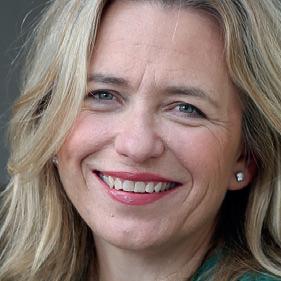
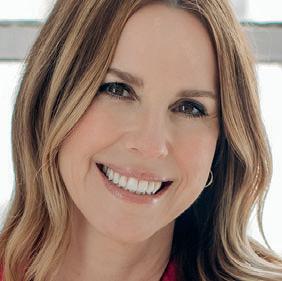
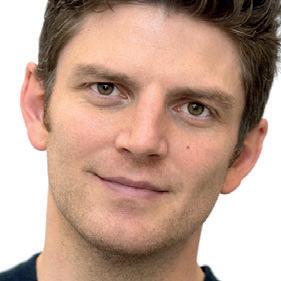



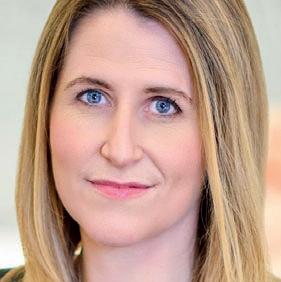

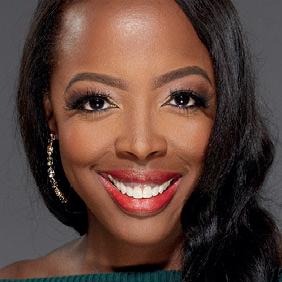
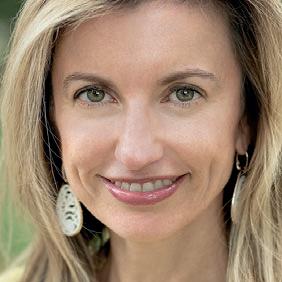

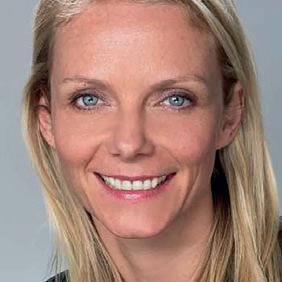



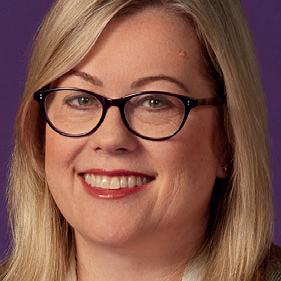


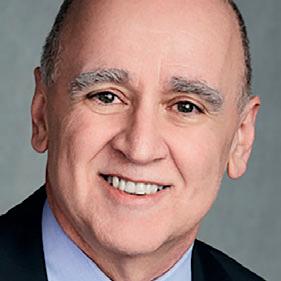


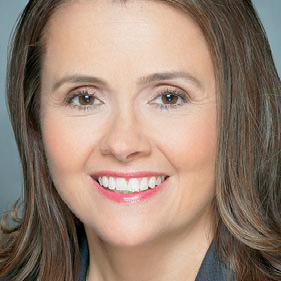

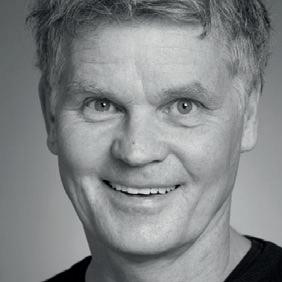









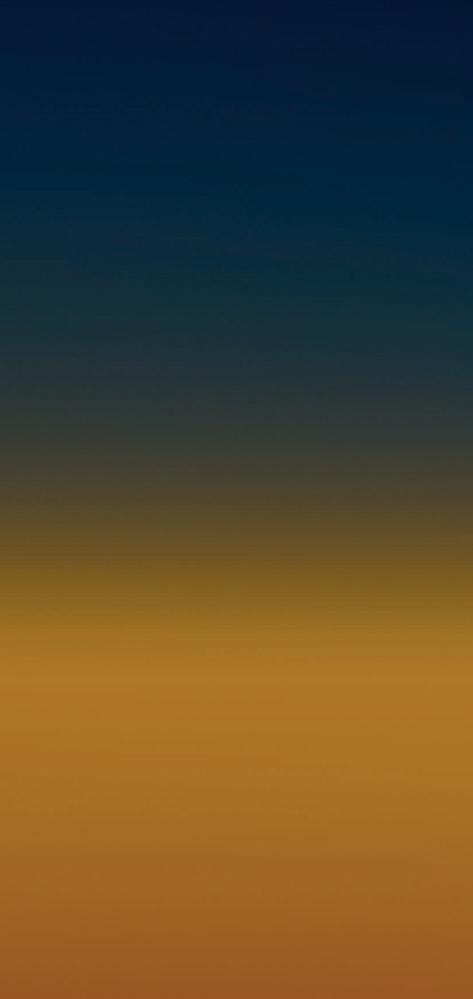

All3Media International, Anchor Entertainment, Banijay Rights, BBC Studios, Big Media, British Film Commission, Chicken Soup for the Soul Entertainment, Cinedigm, Fox Entertainment, ITV Studios, Jupiter Entertainment, Media Res, Media Res International, MGM, MGM+, an Amazon company, Ontier Media & Music Advisory Ltd, RMVISTAR, Roku Media, The Africa Channel, Tubi, UCP, Universal International Studios, Universal Studio Group, Universal Television, Universal Television Alternative Studio, Velvet Hammer Media, Wattpad WEBTOON Studios + more to be announced.
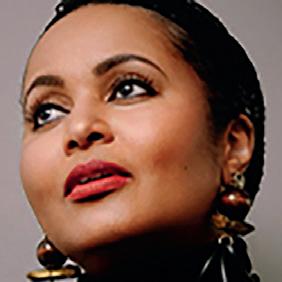
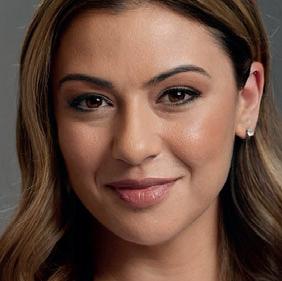











































































































When Belgian network RTBF licensed its new environmental entertainment format La Yourte(The Yurt: Celebrity Green Challenge) to French commercial broadcaster TF1, it was more than just a sale – it was a statement of intent. The Brussels-based pubcaster has been quietly entertaining and informing the Frenchspeaking population of Belgium since 1930 but has struggled to gain recognition in the wider world.
It’s somewhat ironic, then, that RTBF shares its initials with the internet abbreviation ‘right to be forgotten.’

All that is set to change, as the French-language broadcaster readies a slate of formats from its inhouse production arm, RTBF Creative, to shop internationally, starting at MipTV.
“It’s a new beginning for us because we are not very well known,” says Sandrine Roustan, MD of content at RTBF. “Selling La Yourte to TF1 was important to us as a way of saying, ‘Hello! We are here!’, to show we exist and to shout about our work.”
Coproduced with Why Why Productions, La Yourte sees pampered celebrities give up their city lives to spend five days in a yurt. To win up to €10,000 (US$10,900) for an environmental charity, they must learn to live more eco-conscious, sustainable lives using only the natural resources available to them.

Screened towards the end of 2022, the four-part series was a hit for RTBF, achieving a 20% audience share and record-breaking ratings on young adultskewing channel Tipik, according to Roustan.
“We had been looking for an environmental format because we know the younger generation care about this issue,” says Roustan. “We had tried unsuccessfully with documentaries, magazine and talkshows before settling on this entertainment format, which was much more successful than we could have imagined.
After decades of relying on acquisitions and imports, Belgian pubcaster RTBF has started creating its own formats and shopping them globally, MD of content Sandrine Roustan tells Neil Batey

“Viewers enjoy La Yourte because alongside the central theme of environmental awareness, it’s also very entertaining. People don’t want to feel punished and be constantly told that the planet is going to die.”

The show is just one example of an outwardfacing global strategy devised by Roustan two years ago when she set up a research and development team.
Comprising six staffers from both the youthful
Of), an immersive show in which celebrities step inside a sensory dome which triggers emotions and memories; sketch show Comme a la Maison (My Friends Got Jokes), presented by YouTuber GuiHome; plus an untitled political talkshow about democracy to tie in with the Belgian general election in 2024.
Its MipTV slate also includes 5-Star Village, in which celebrities compete to discover the most beautiful villages, and cooking-themed talent show Chocolate Stars, which will be shopped by RTBF’s head of distribution Tuyet Nguyen Canry.
digital division and the more experienced TV and radio departments, the unit has since developed a handful of formats.
The team’s two major objectives are to continue acquiring, revamping or adapting established formats – one example being The Dancer, RTBF’s remake of The Greatest Dancer, a talent show from Simon Cowell’s Syco Entertainment label which ran for two seasons on the UK’s BBC One. These shows screen in primetime slots on RTBF’s main channels La Une and Tipik.
The second ambition is to create IP in-house, seek coproduction partners to gap finance and license the content to international territories.
Original programming that RTBF has high hopes for include Dans le Bulle de (In the Bubble
“At RTBF we have small budgets but big ideas,” says Roustan, a former Canal+, Endemol France and France Télévisions executive. “We try out our new content in non-risky time slots on our digital channels, test and learn, then decide if it has the potential to be launched internationally as a format.
“We don’t have enough money to make all our content in-house, so RTBF continues to import shows. At MipTV, I’ll be looking to acquire documentaries, biopics and true crime factual, while on the formats front, I think entertainment and gameshows are coming back.
“Currently at RTBF, we produce four small drama series per year specifically for the Belgian market, but because these shows are so original we are starting to get interest from streaming platforms.
“There is so much talent in Wallonia [the Frenchspeaking region of southern Belgium], with great producers, writers, actors, animators and directors. It’s a great time to coproduce and partner with us Walloons.”
“
Viewers enjoy La Yourte because alongside the central theme of environmental awareness, it’s also very entertaining. People don’t want to feel punished and be constantly told that the planet is going to die.
Sandrine Roustan RTBF
What have been the defining shows and moments for you over the past year?
A few big things for us last year were the acquisition of Plimsoll Productions and a big step up into that natural history world; the continued success of big brands like The Voice, Love Island and I’m a Celebrity… Get Me Out of Here!, which had the highest numbers we’ve seen for some time; and then trying to bring new shows through, like My Mum, Your Dad, which finished with great numbers in Australia and has multiple versions to come in 2023.
Has there been a push towards more reality formats, perhaps at the expense of studiobased shows?
The type of content we see being produced and developed, be it reality versus studio, is evercyclical. We saw a lot of studio during the pandemic because you could control the environment. Coming out of that there has been a big shift to location-based, travel, reality shows. It’s to do with the audience – streamers are aimed at a younger
they want to watch, so tend to produce shows they enjoy, which is a lot of dating shows like Love Island, Too Hot To Handle and Love is Blind. Our goal now is to take that interest in those shows and the steps and beats in those formats and take them into different areas.
ITV is the latest UK broadcaster to relaunch the classic Big Brother format. Where do you sit on the reboot phenomenon?



Traditional broadcasters need to get to their audience quickly and they need to understand the show very fast. In a world of lots of content, one of the ways of doing that is bringing something back they remember fondly, like Big Brother, Gladiators and Survivor. We’ve seen it when we reboot The Voice in [different] territories.

the creativity, it can also come in at a lower price. It exists within a schedule or choice. It’s got to exist in an ecosystem people want to watch so you come in for a drama and find it, or vice versa.
What are the main challenges you face?
The challenges in 2023 inevitably revolve around cost. We’re through the pandemic, and who knows what might happen with a European land war, but costs will sit at the top [of the agenda]. We must go into production now looking at how we produce it – the technology, traditional costs that we don’t need any more, like travel, post-producing from the Cloud, different camera technology. We also have to look at the creativity and think how we de-risk it for a buyer.

and tech-savvy audience who can find the shows seasons next one. How do
You’ve got to make sure the show is relevant to now, not just a reproduction of what it was 10 or 15 years ago. You’ve got to attract a new audience, not just people who remember it fondly. And then it’s about maintaining it, because what we’ve seen is, to some extent, they only last two or three seasons and the channel has to move on to the next one. How do you make it fresh and different without losing the charm the audience likes?
three
Across the board we have to look at how we produce the shows, how we create them and take them to market. If you go in to a buyer and expect the Earth, as you did two years ago, they won’t be able to deliver on that. We mustn’t lose the aspiration of the ideas, [we must] just think more carefully about how we develop them.
In a risk-averse w how to make thos th ticks a lot of boxe noug show that come back a Will unscrip to needs d recessi crisis?

Will unscripted be in a better position to cater to broadcasters’ needs during times of recession and economic
Through 2023, unscripted will have a strong presence, but I don’t think it will be at the expense of anything else. In recessions, people tend to come back to television and content because they don’t have the disposable income to go out as much.
will have a st don’t think it will b bac content because inco turna quickly if things

The great thing about unscripted is the speed of turnaround – we can fill gaps very quickly if things are delayed. Depending on
d different ikes? we know verspend t them, so it ging 0s. see ers’ h he ps very ing on
In a risk-averse world for broadcasters, we know how to make those shows. We won’t overspend massively and they know how to market them, so it ticks a lot of boxes very quickly. Again, it’s cyclical. In the early noughties it was about bringing back a lot of the US shows from the 80s and 90s. It will be a cyclical thing – Masked Singer will dip away and then in five or six years you’ll see that come back again.
Hilton Miami Downtown, 23-25 January 2024
The top-rating event in television is back!
